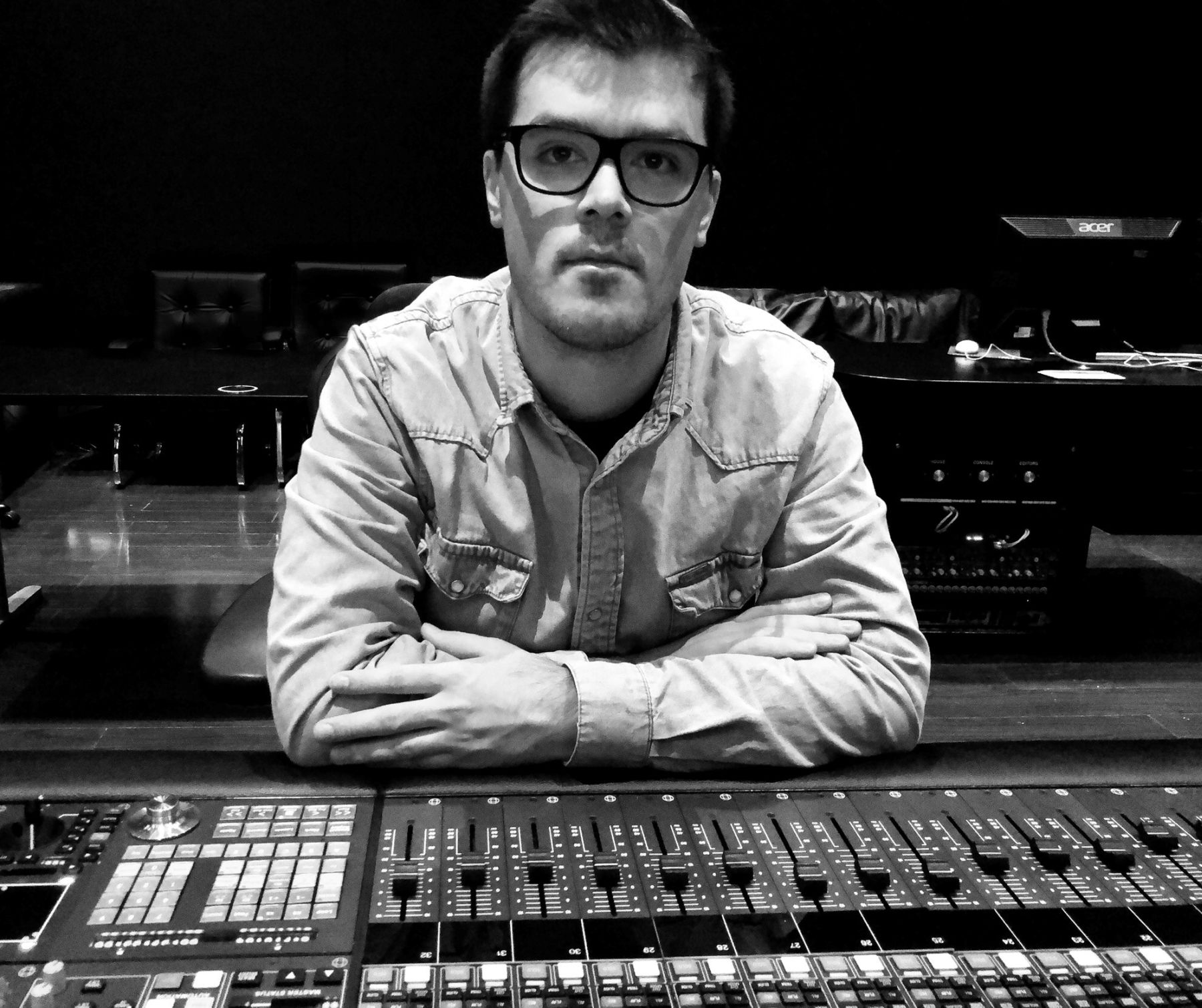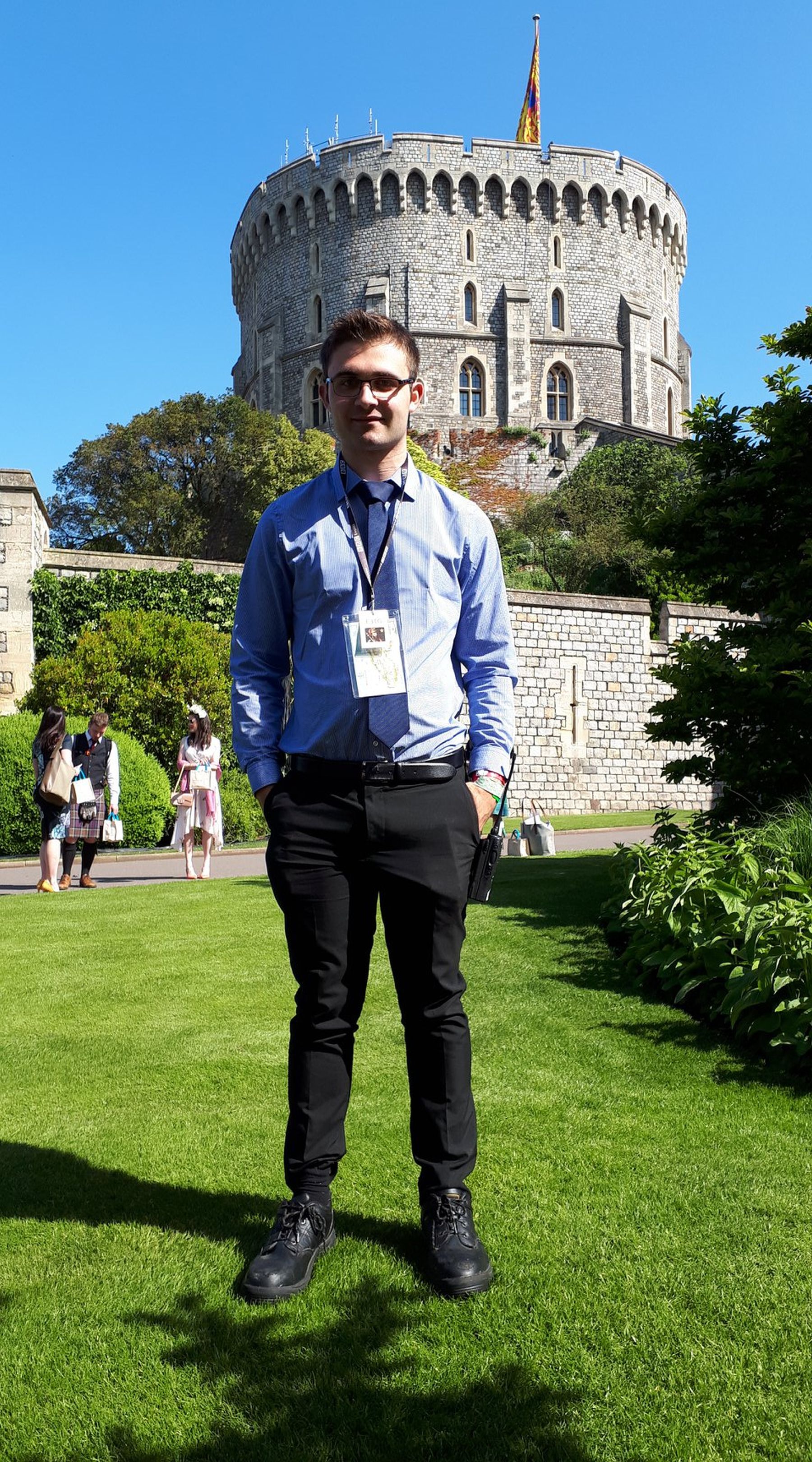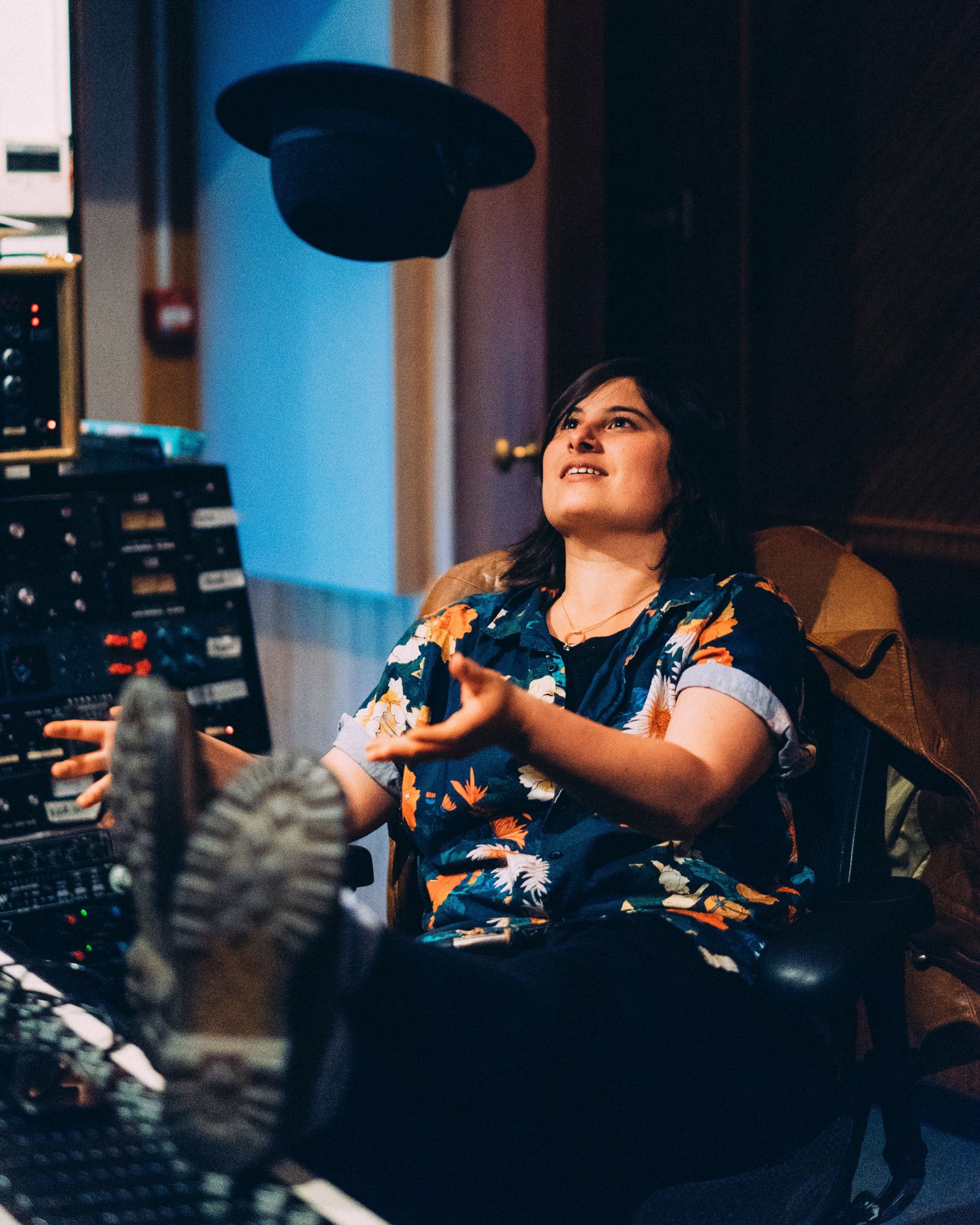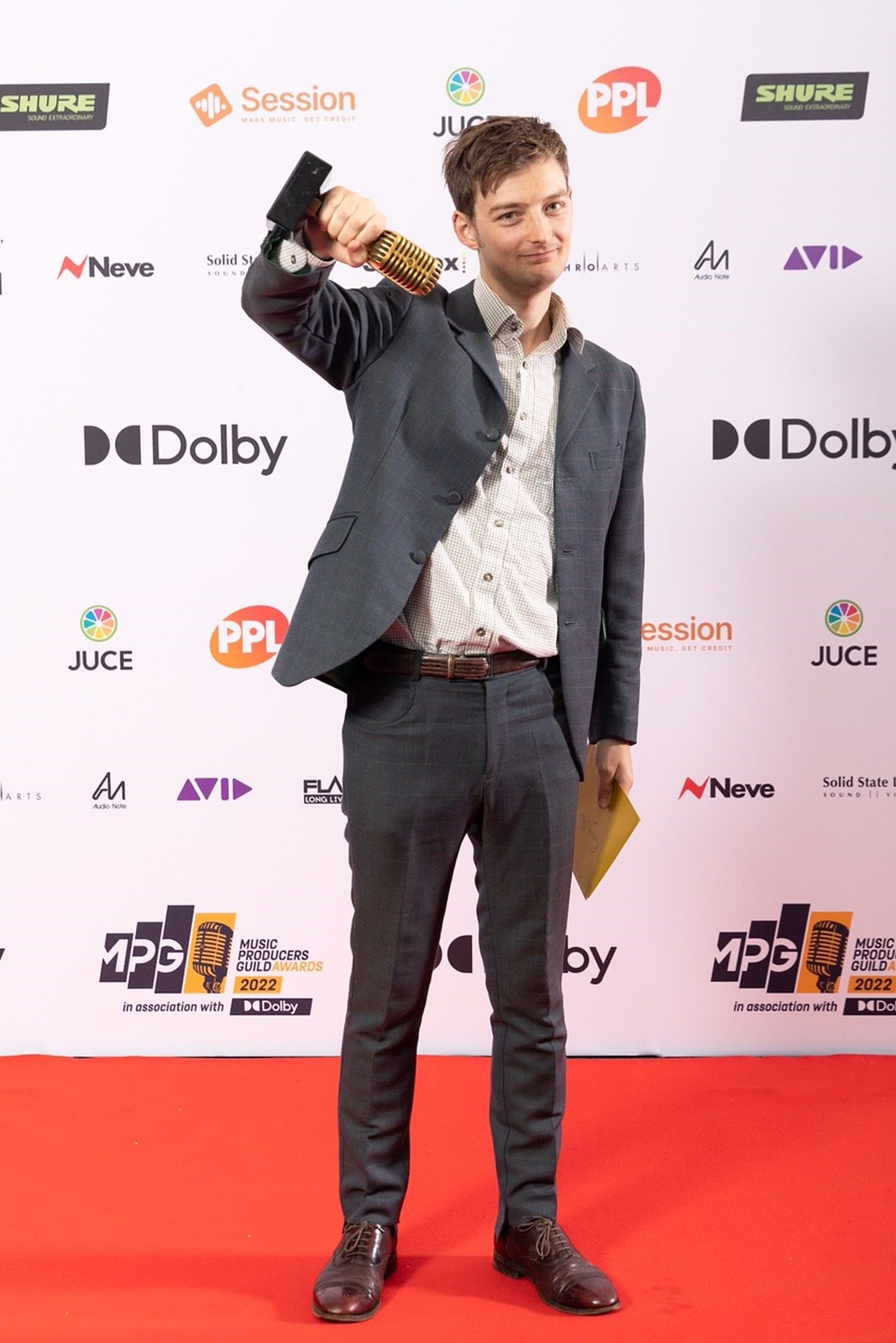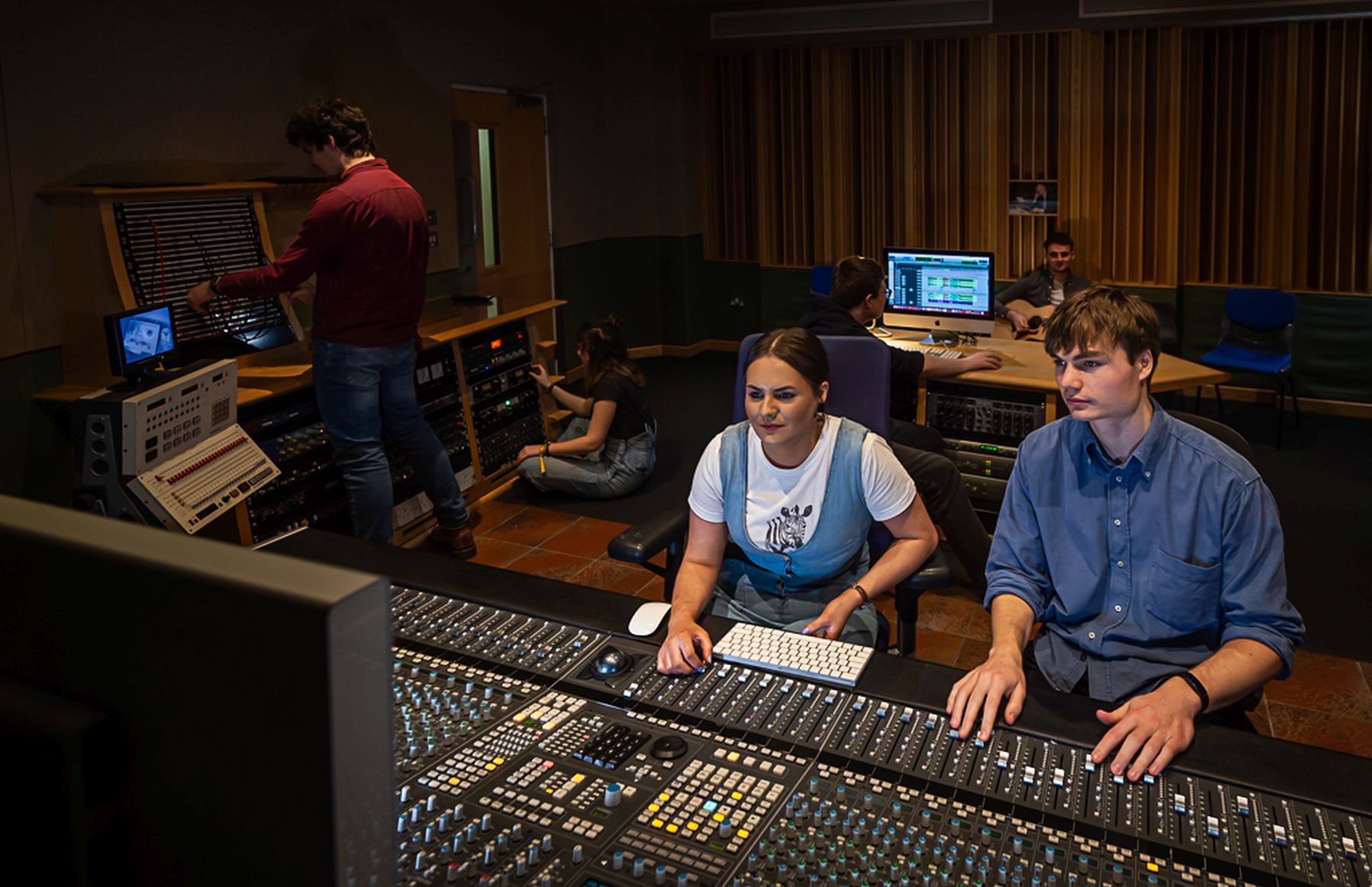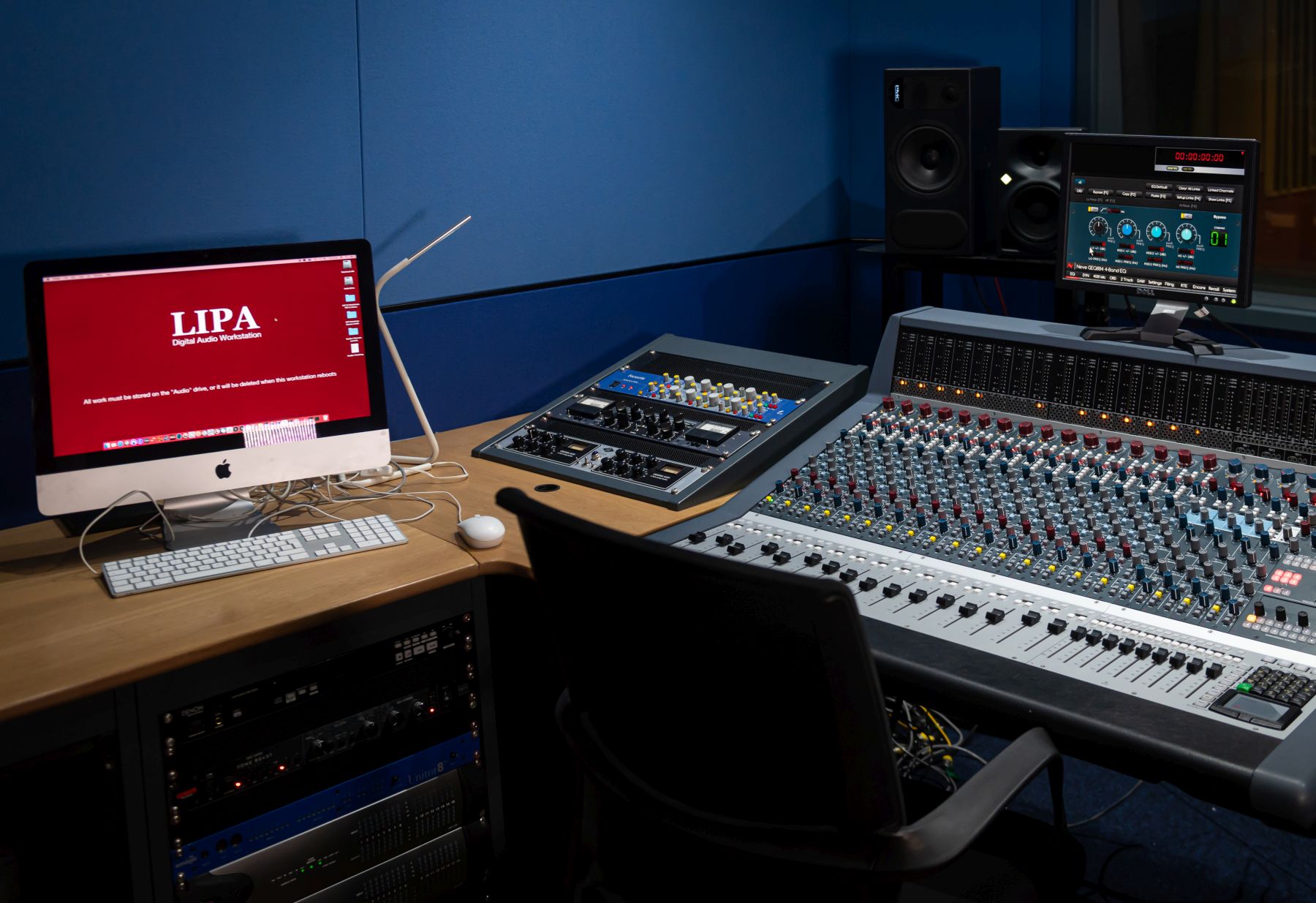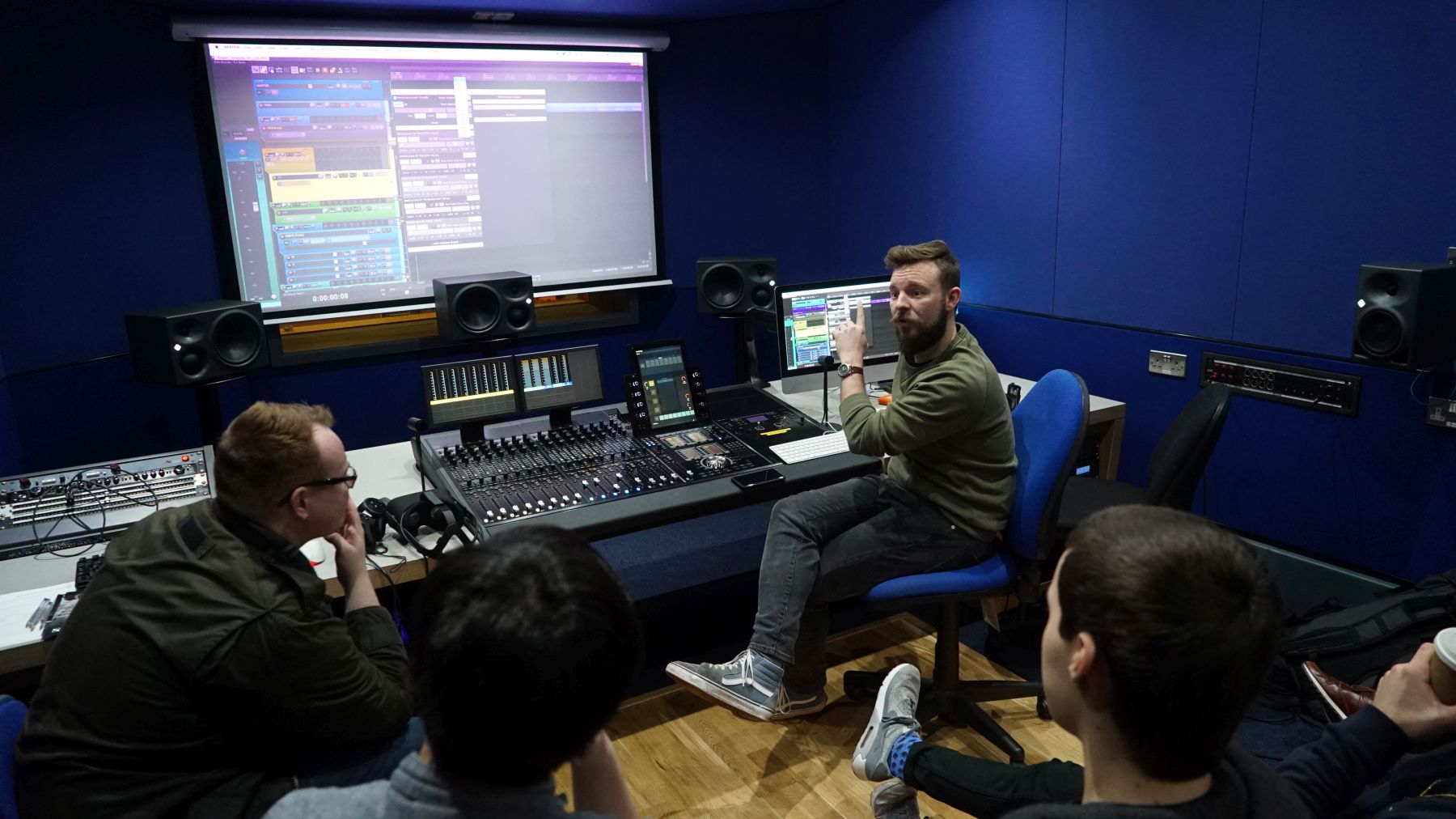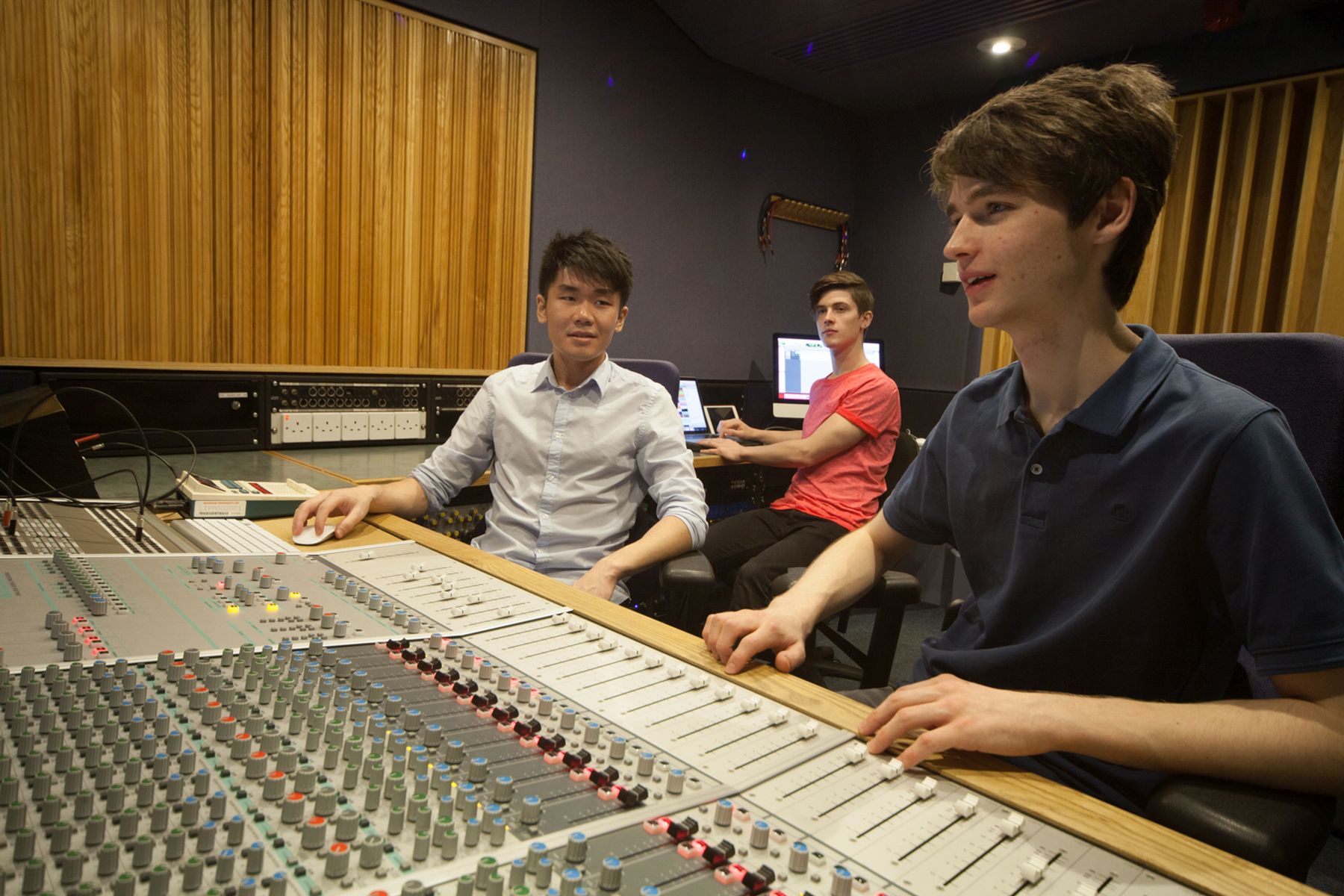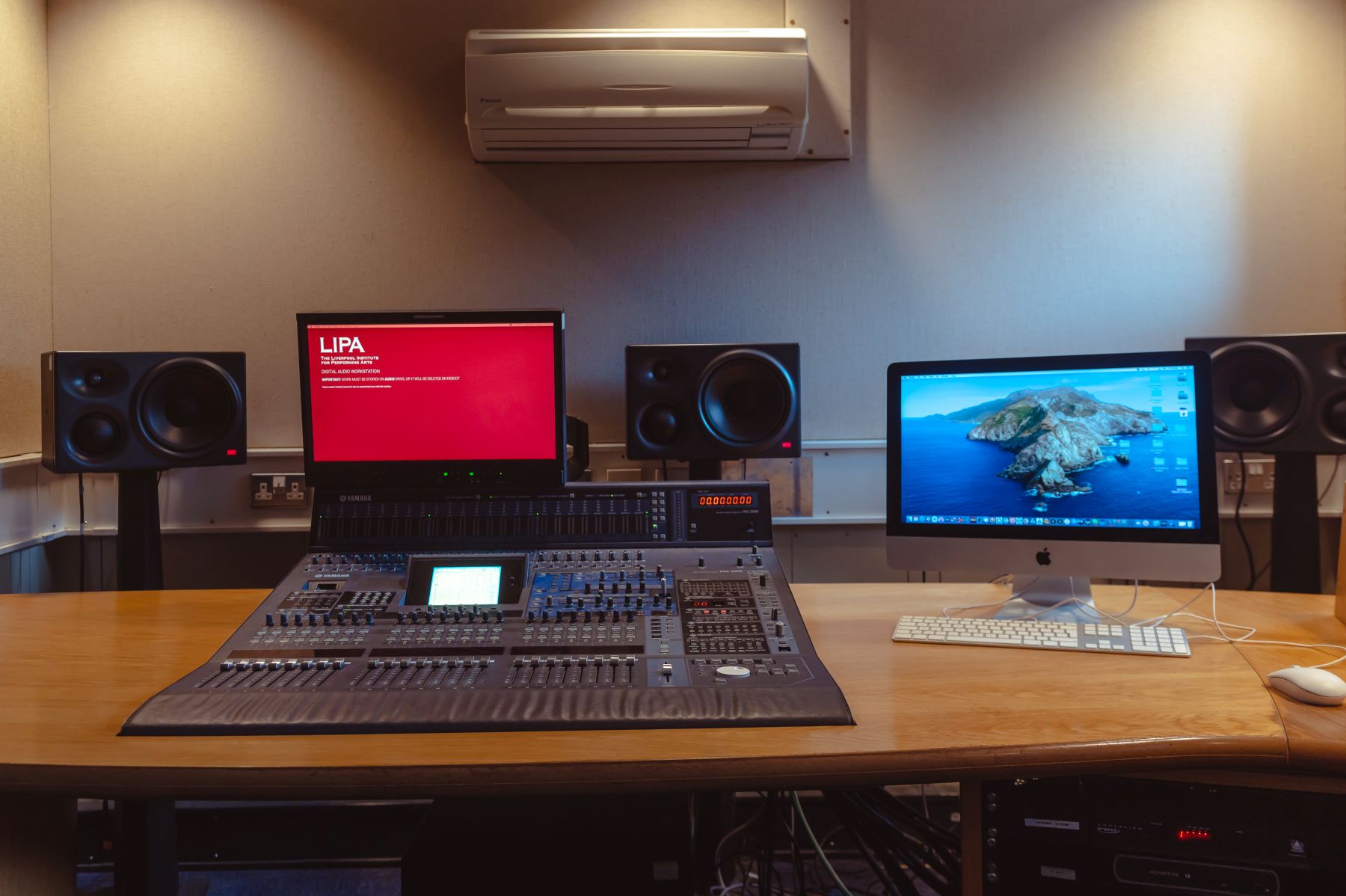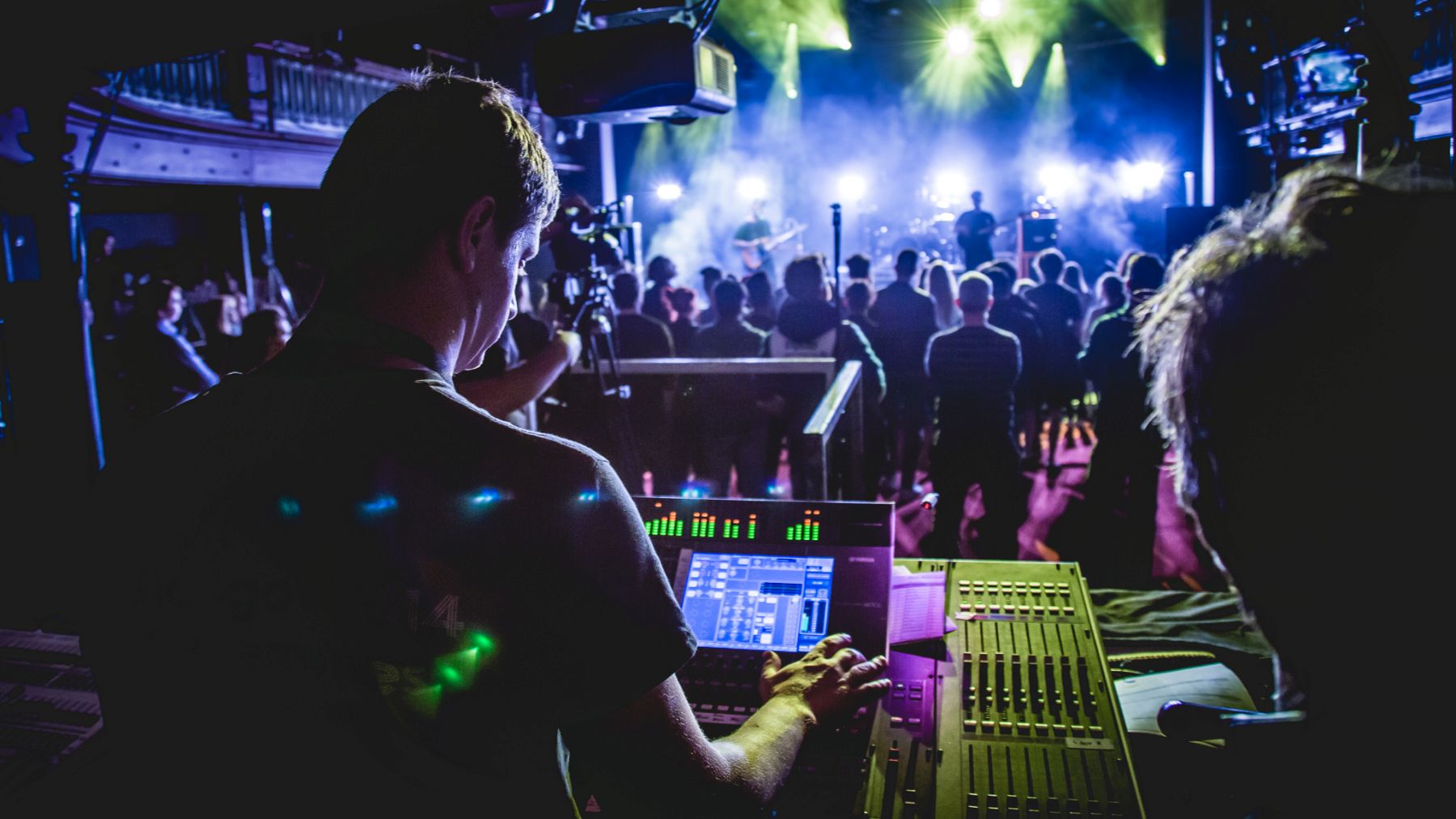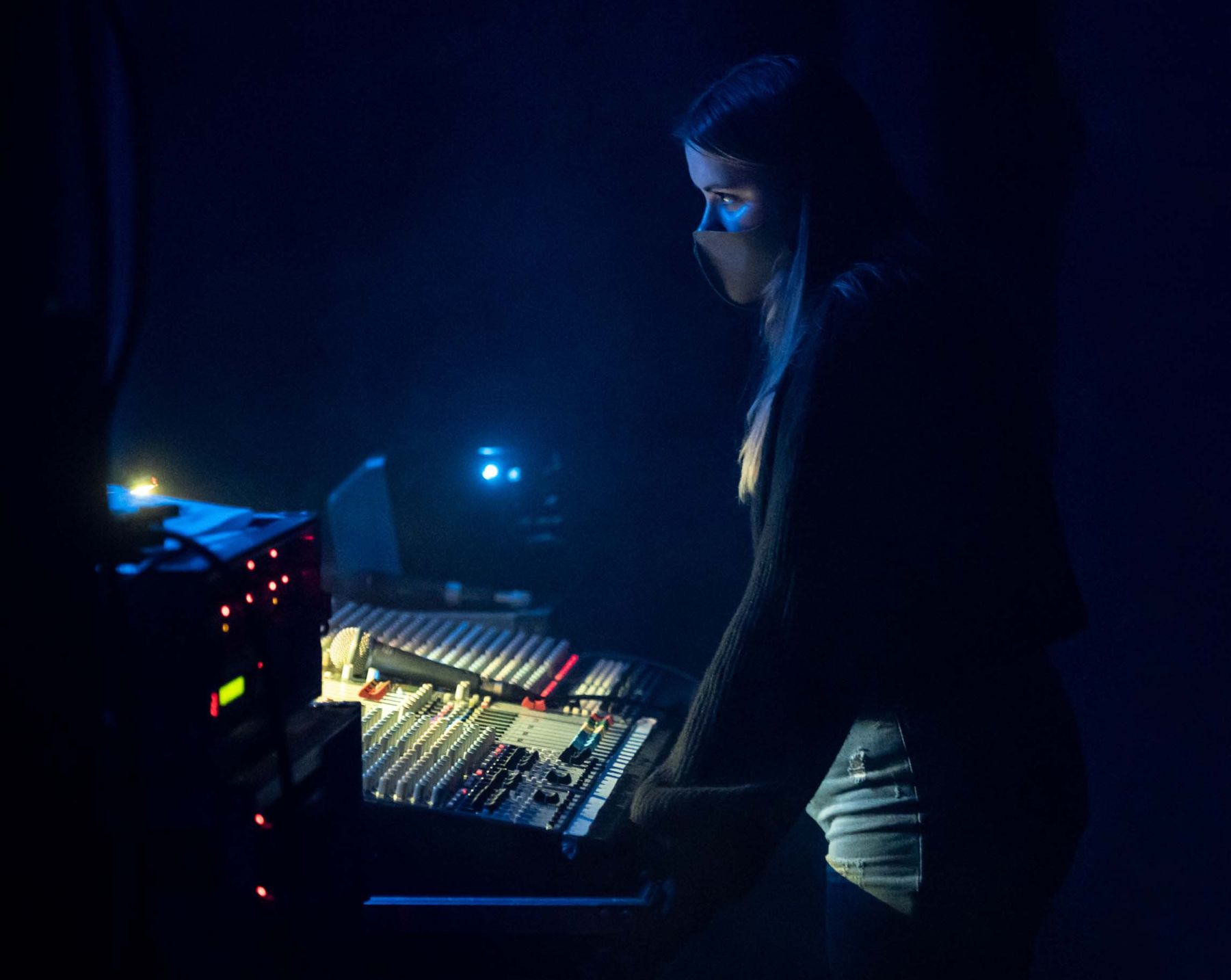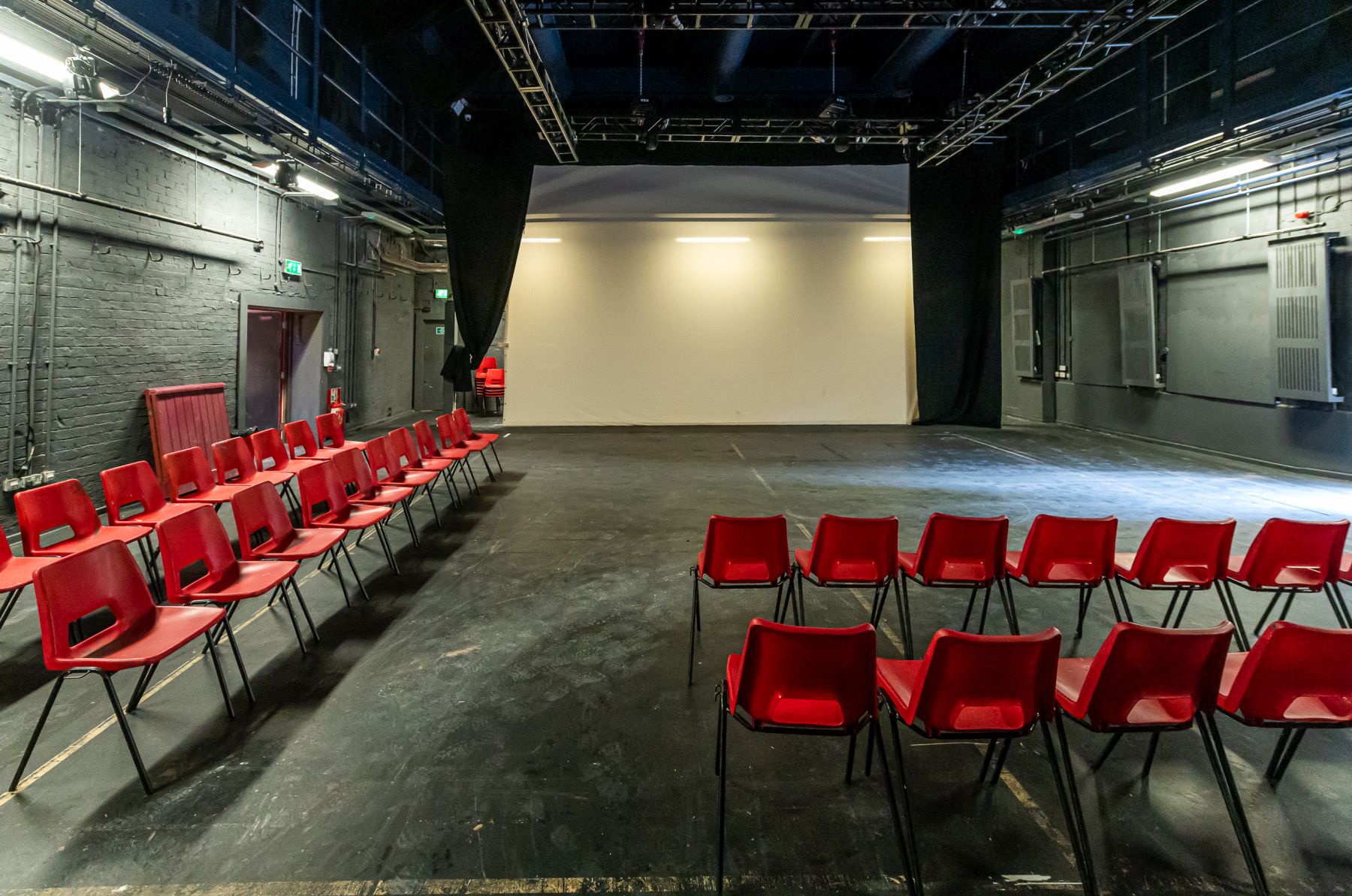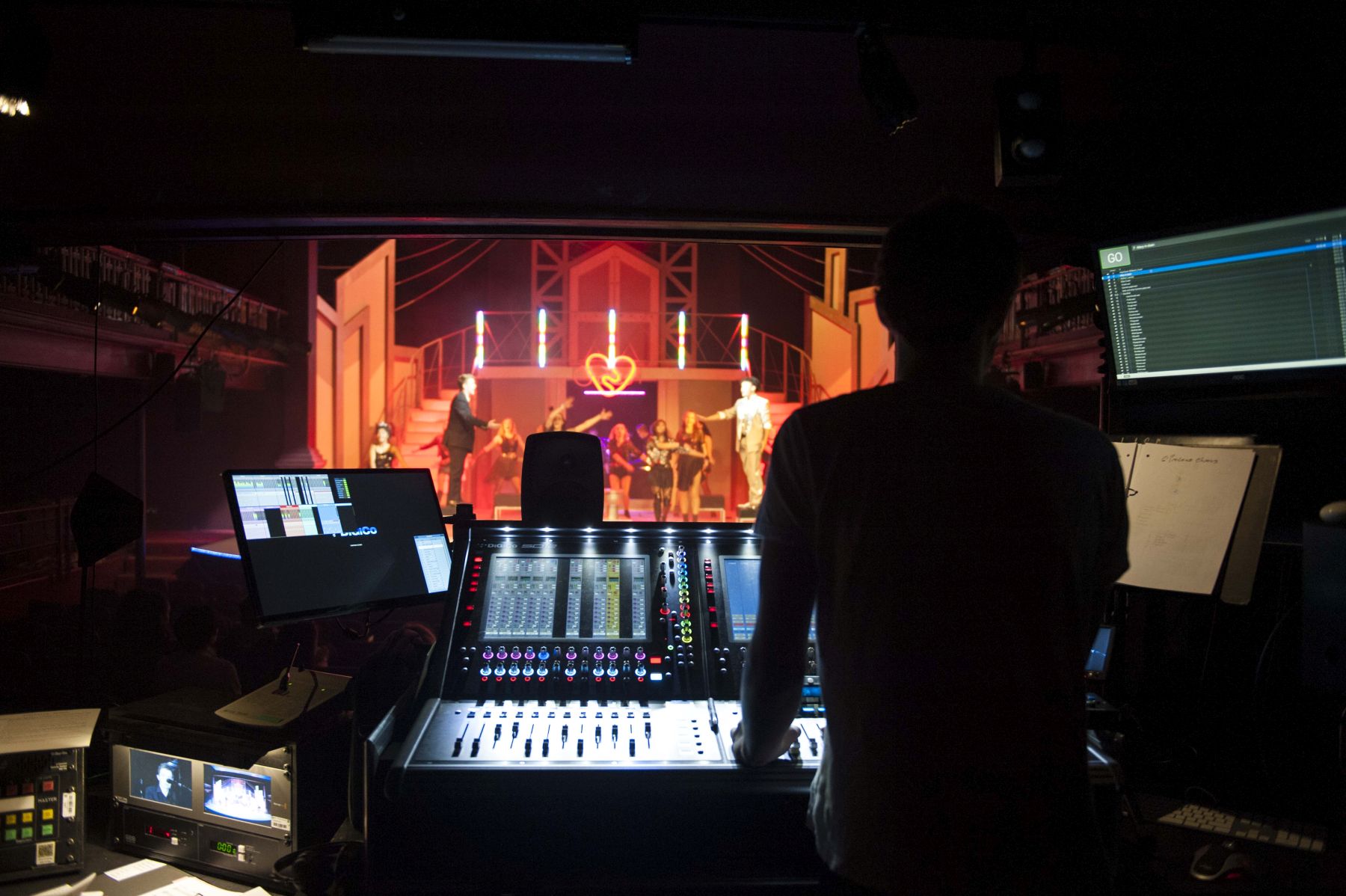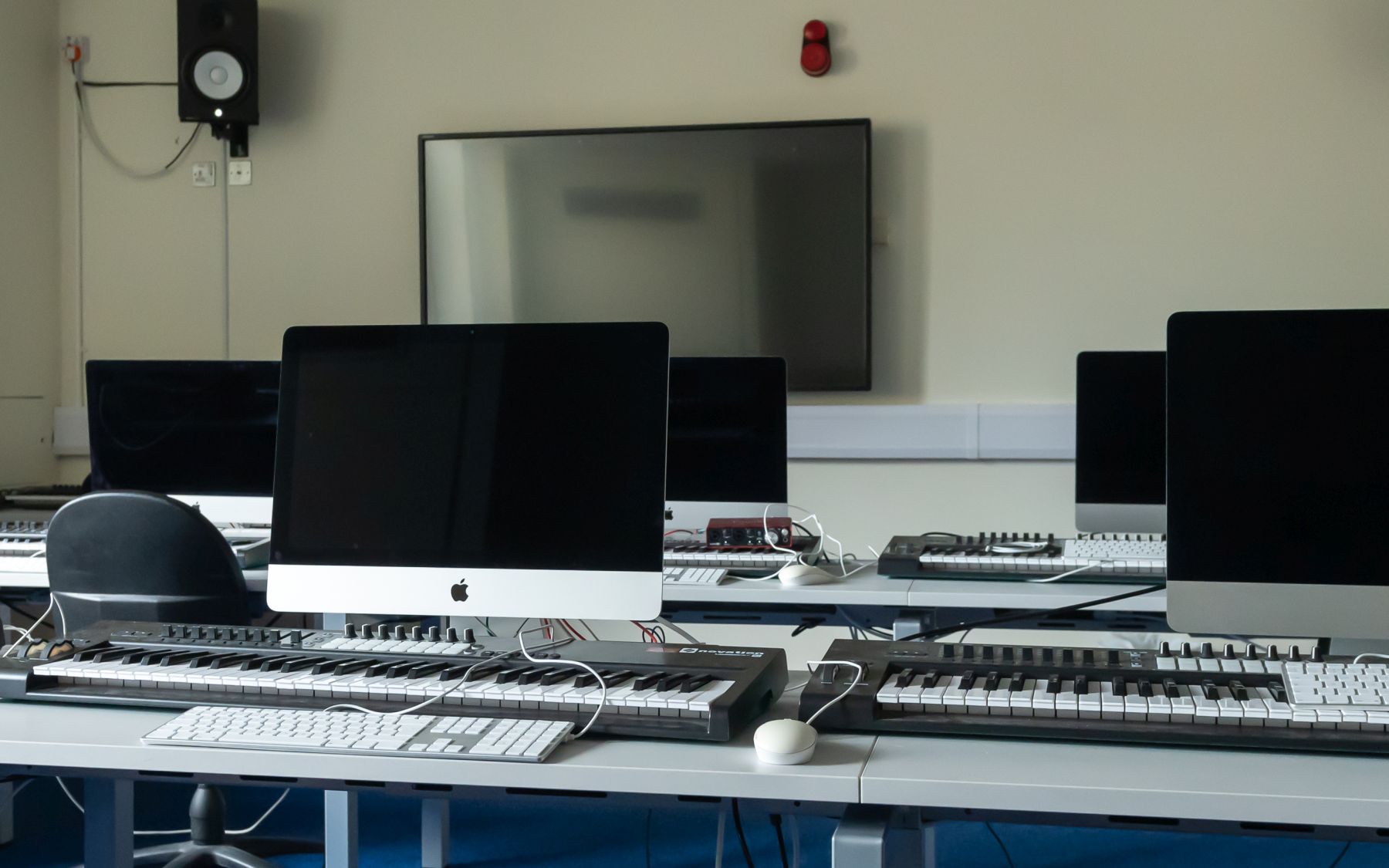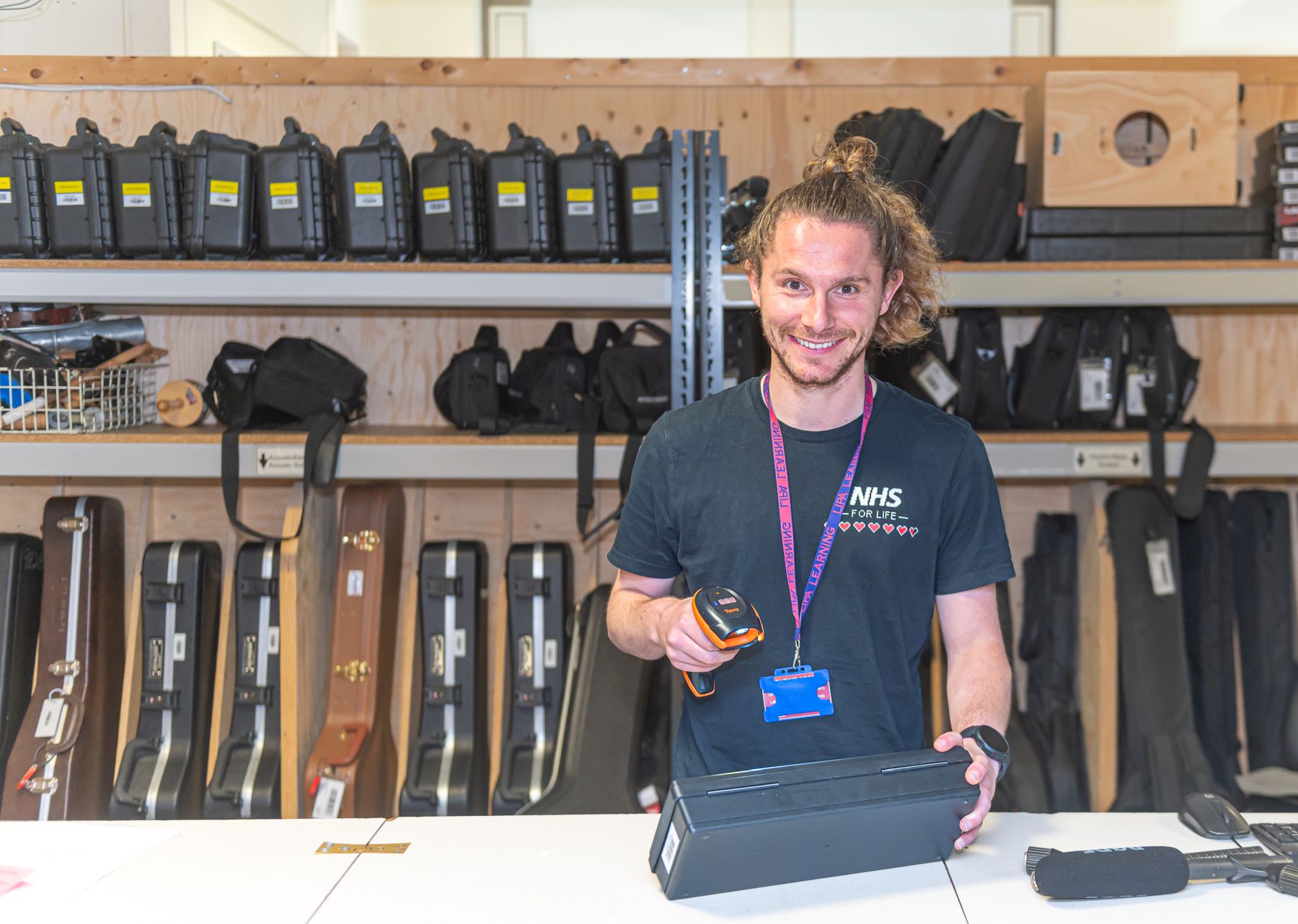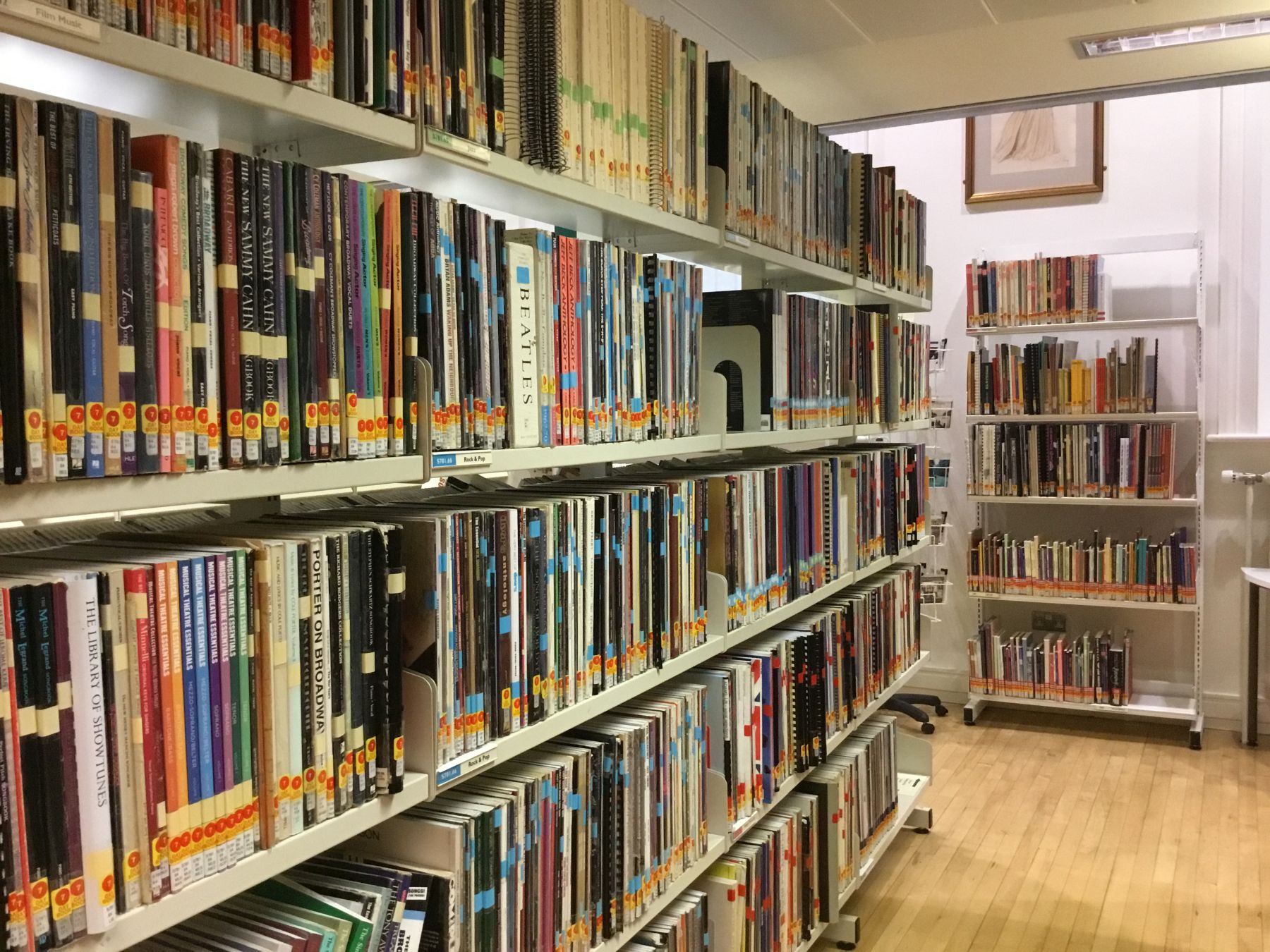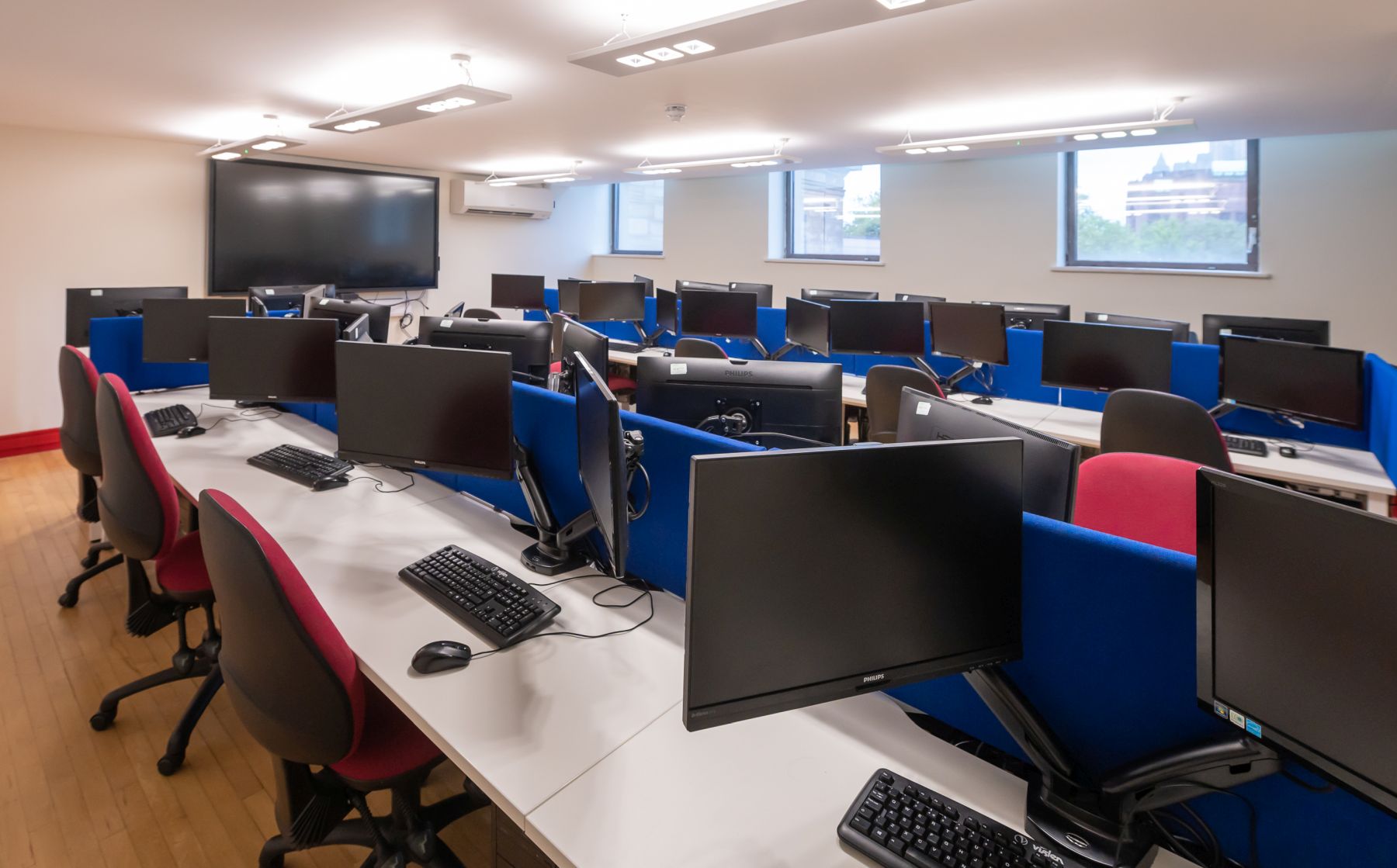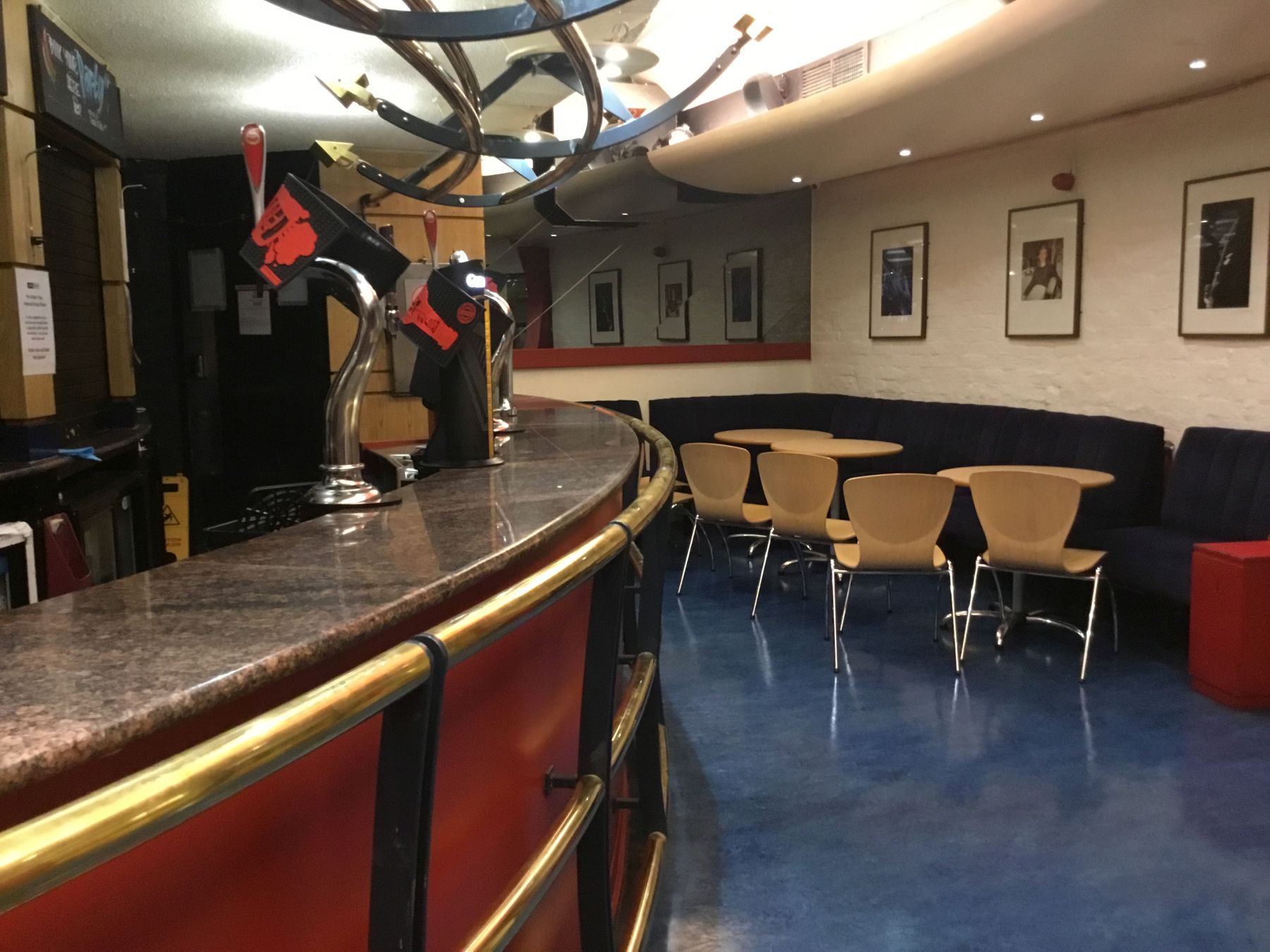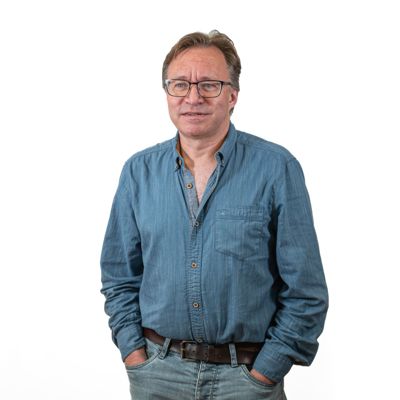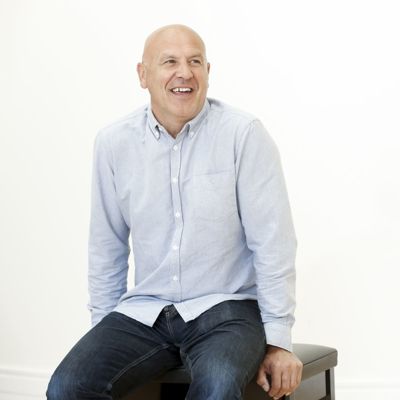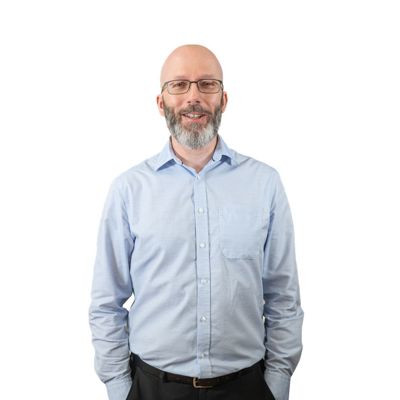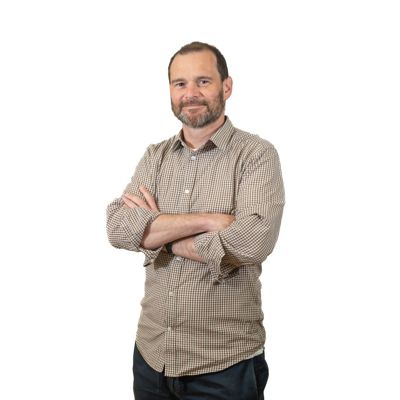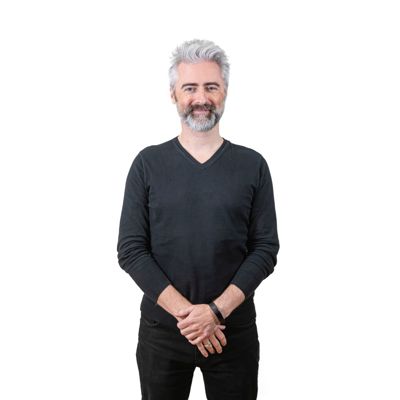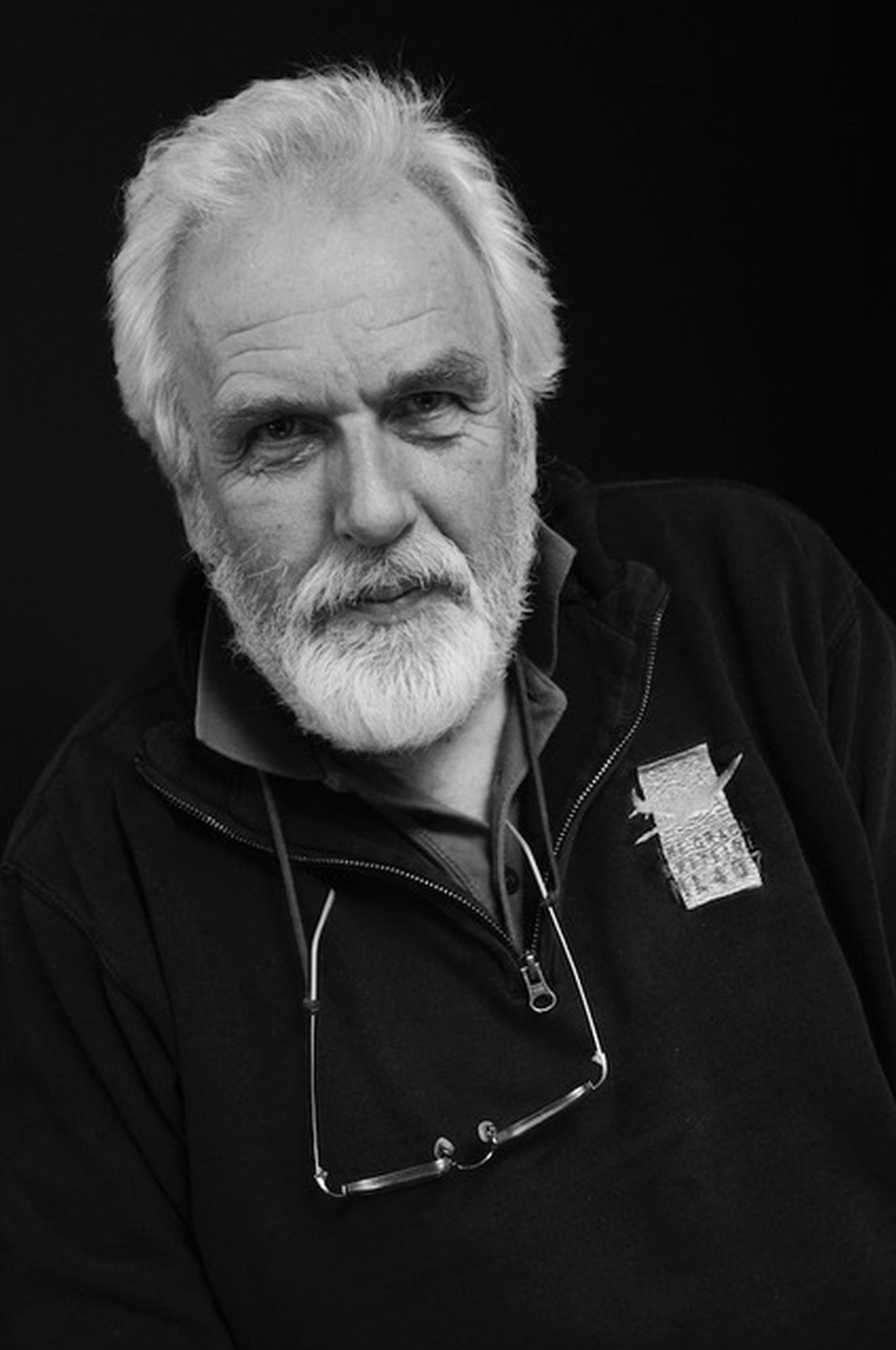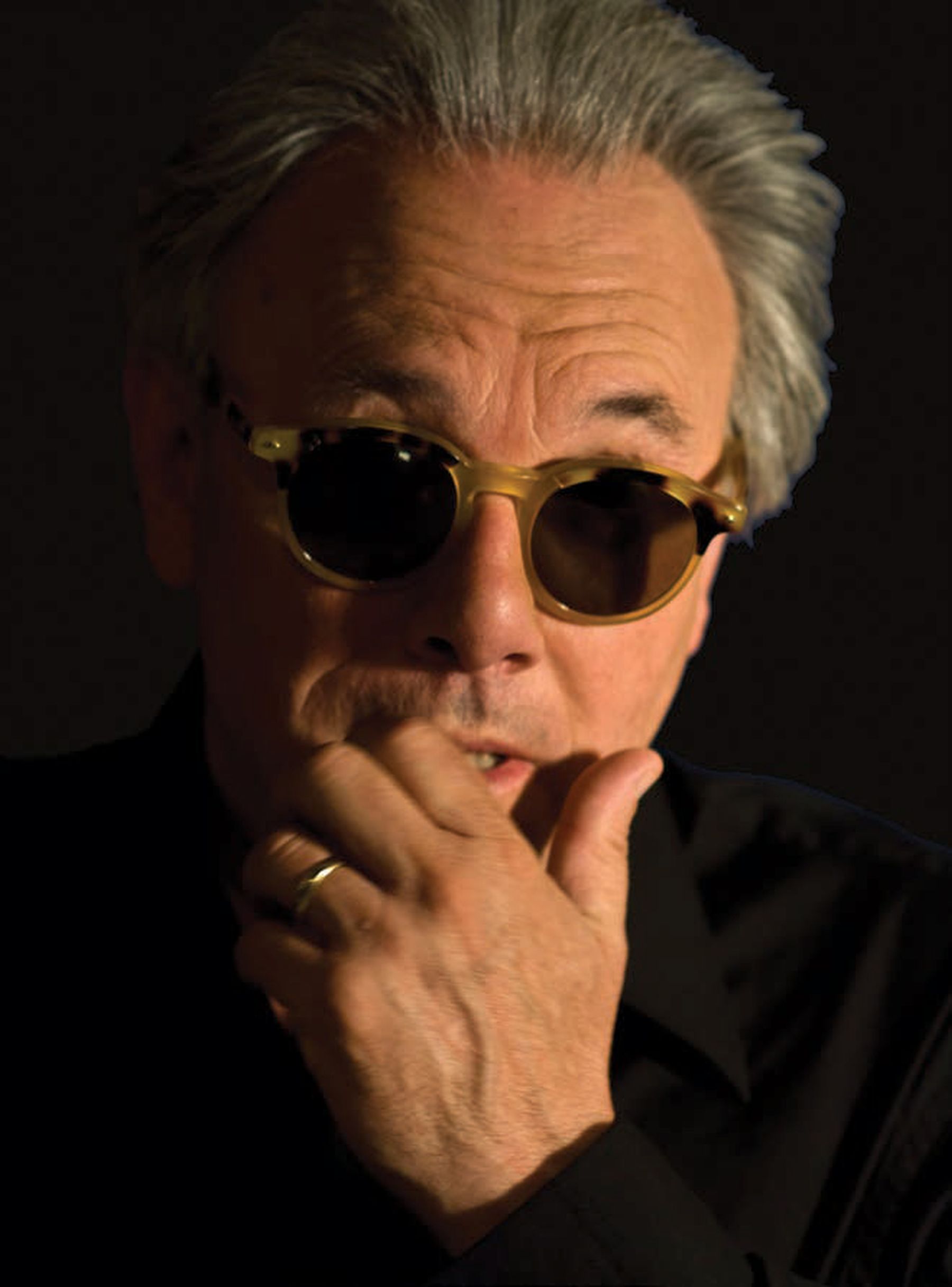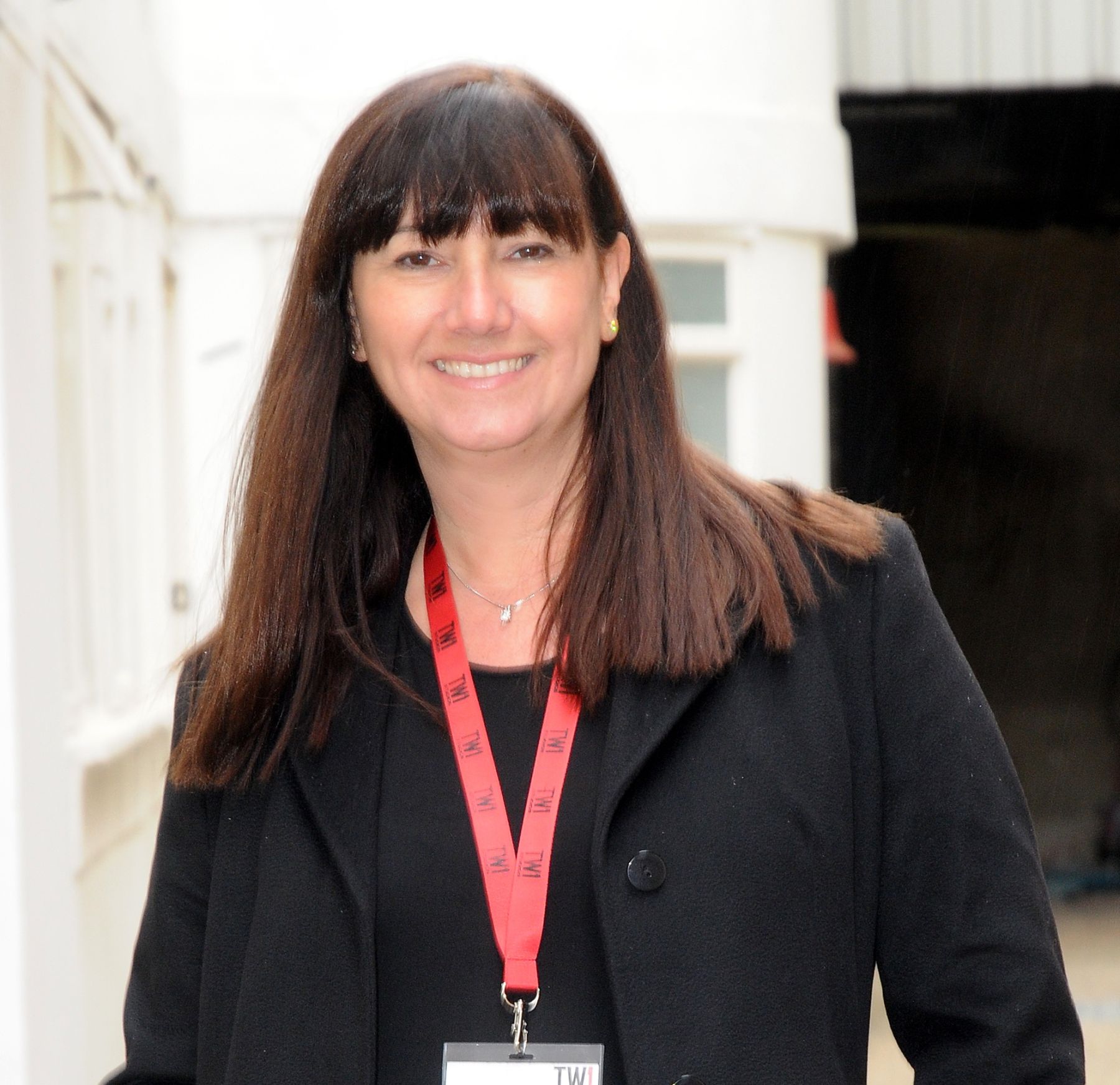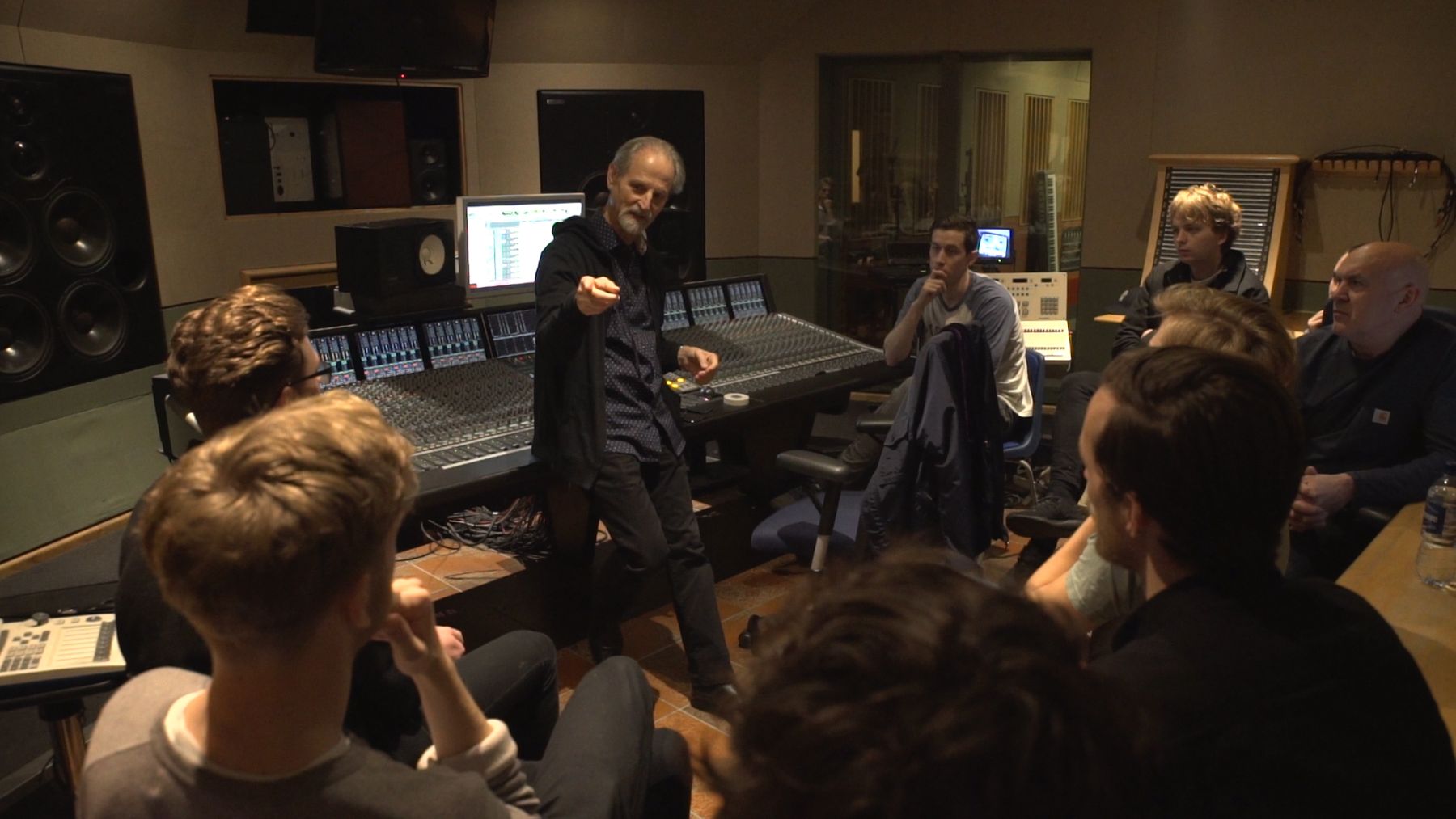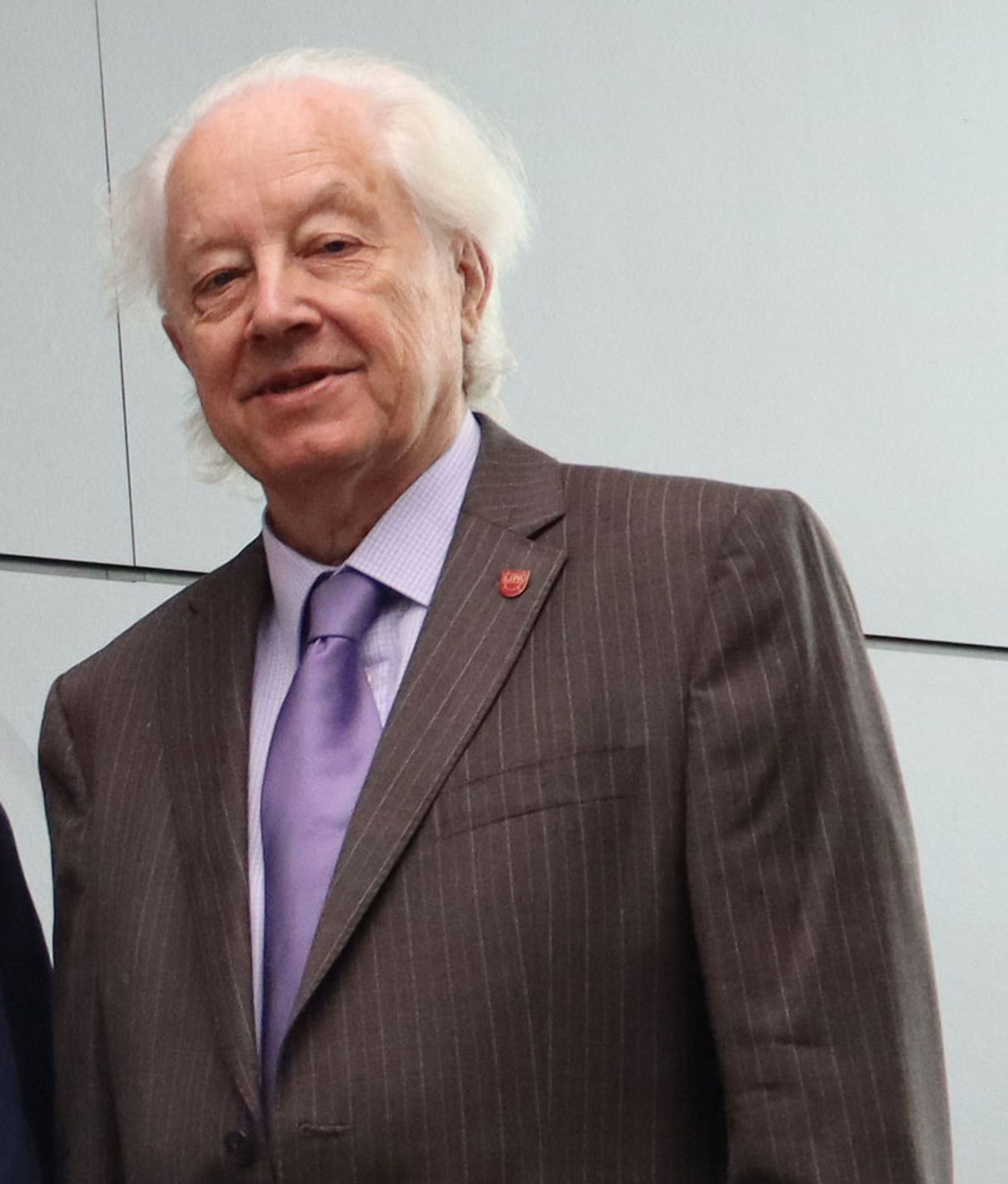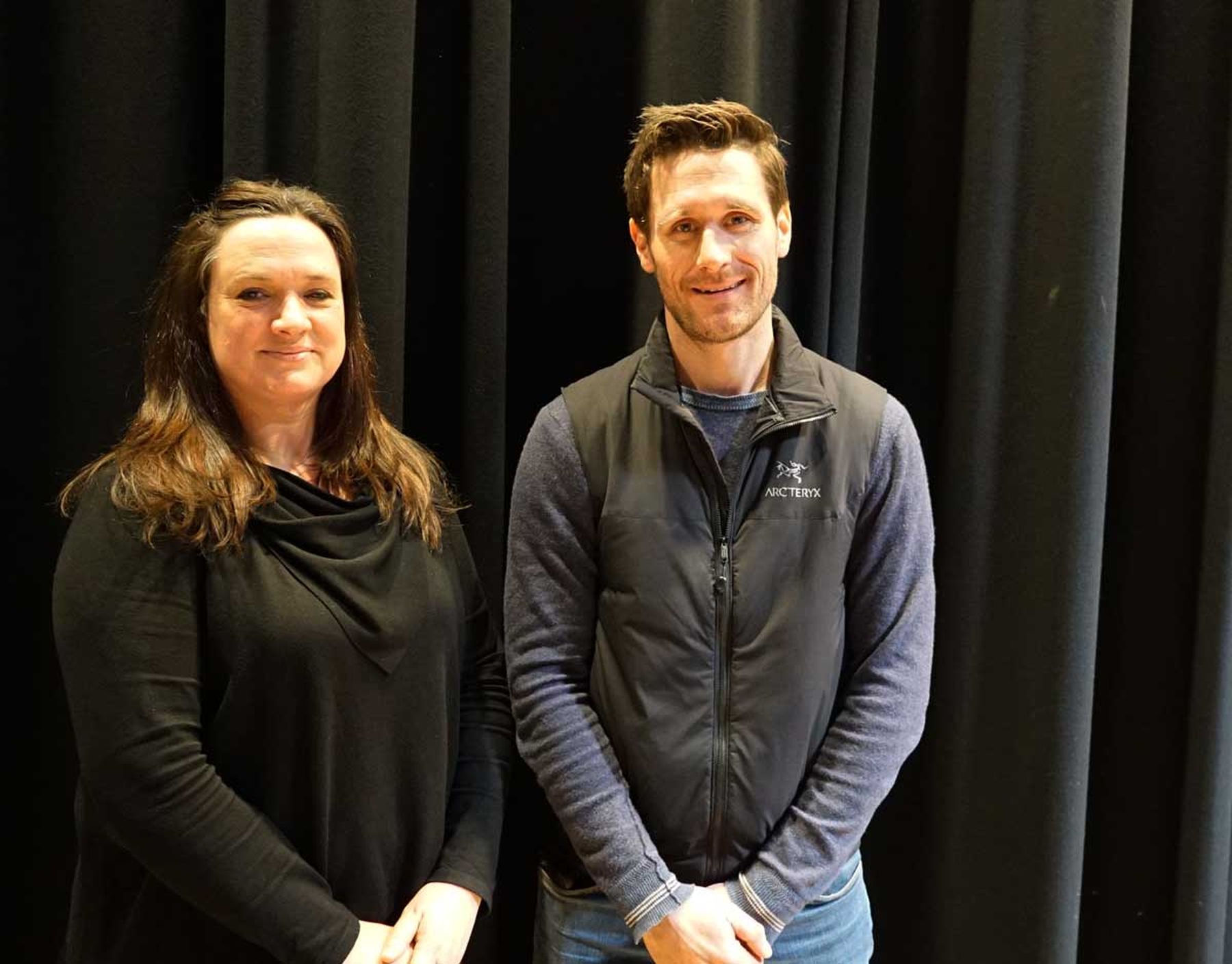Course
Overview
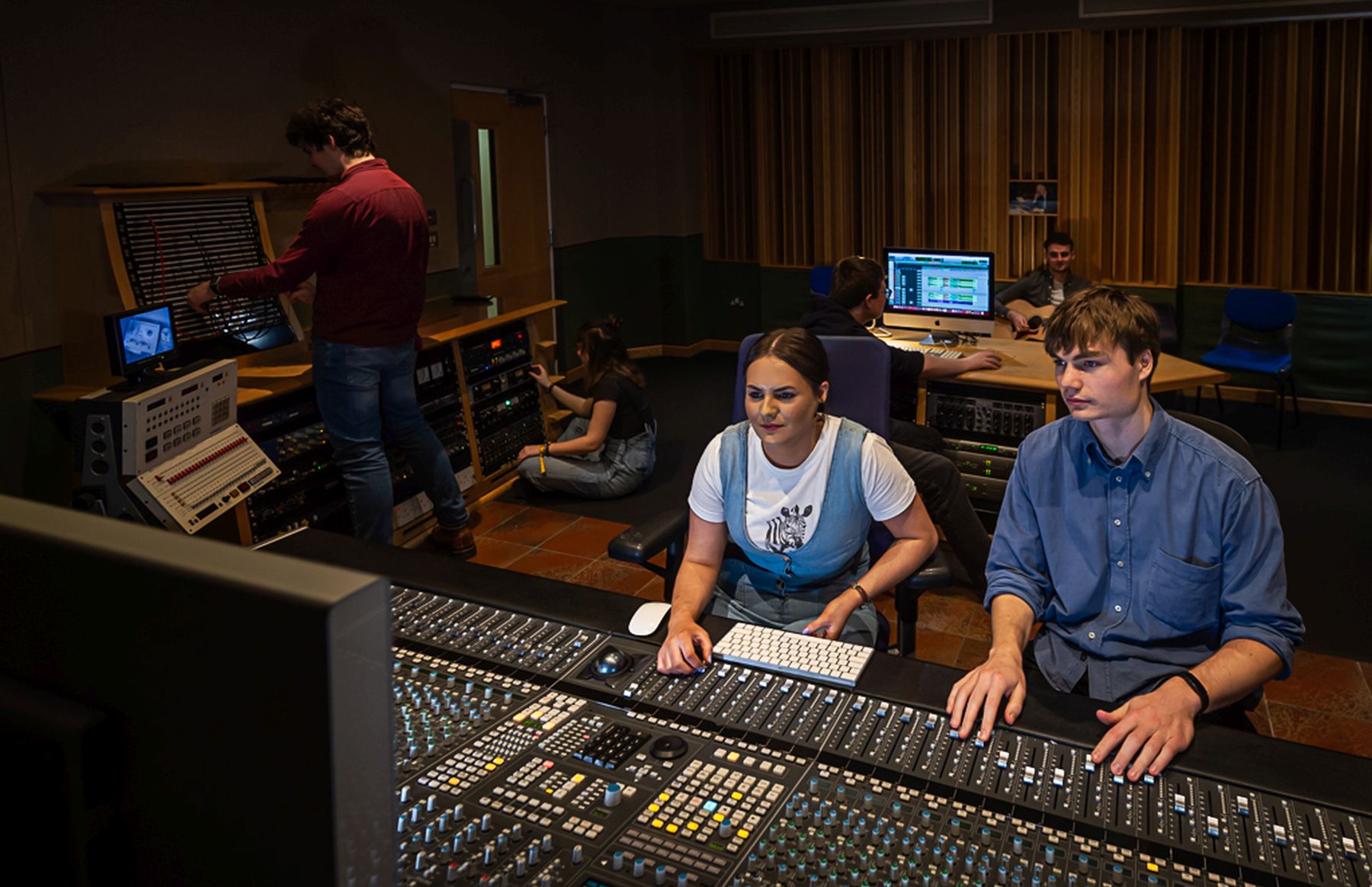
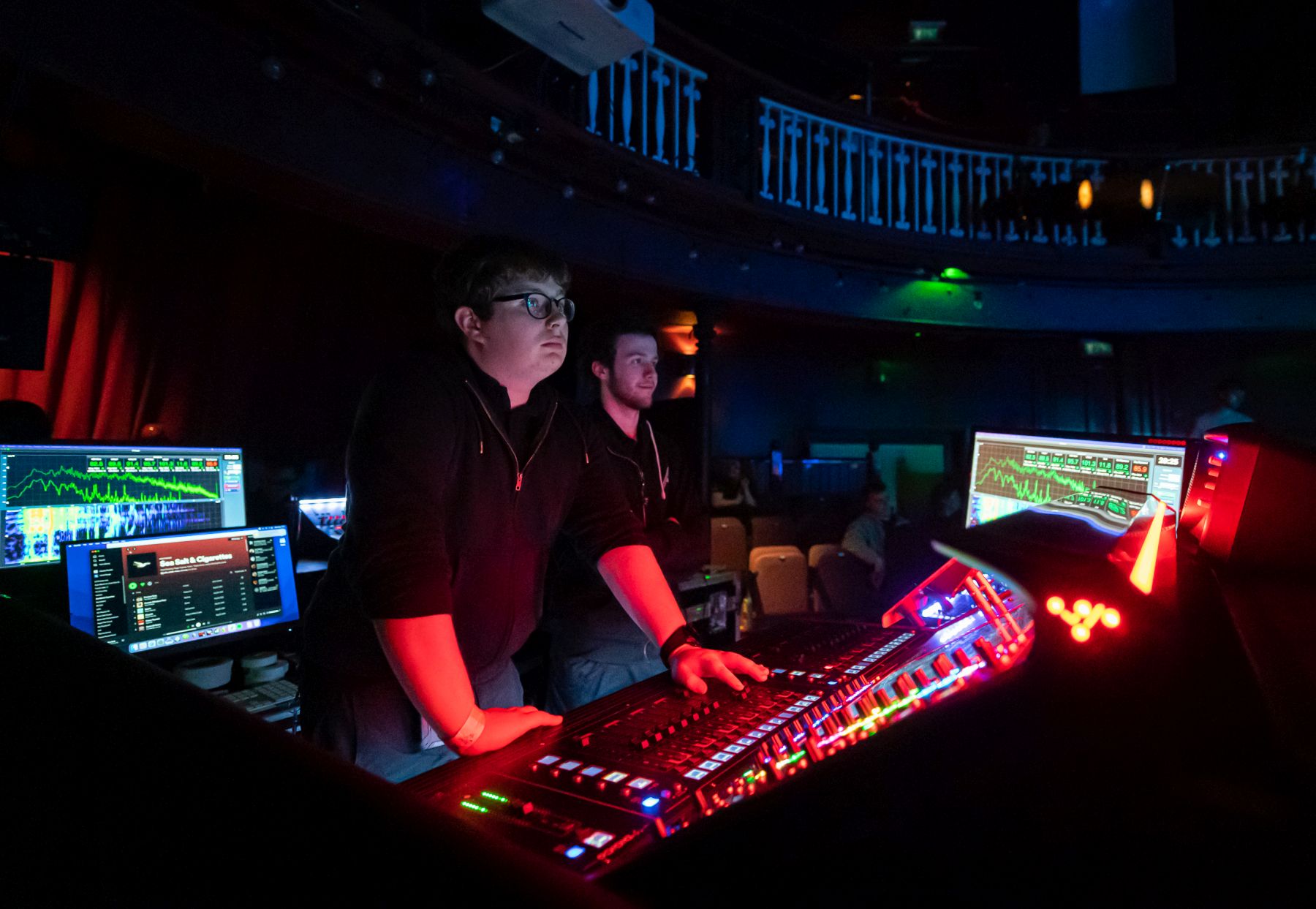
Our course takes a wide view of what working with sound means, to create the next generation of audio professionals able to work across the entire audio industry: recorded sound, live sound, film and TV, gaming and emergent technology.
In your first year you establish the solid foundations required to develop and progress throughout the course. From the second year onwards as your skills advance and you use more sophisticated technology you select areas of study that reflect your aspirations, strengths and interests.
Accreditated By:
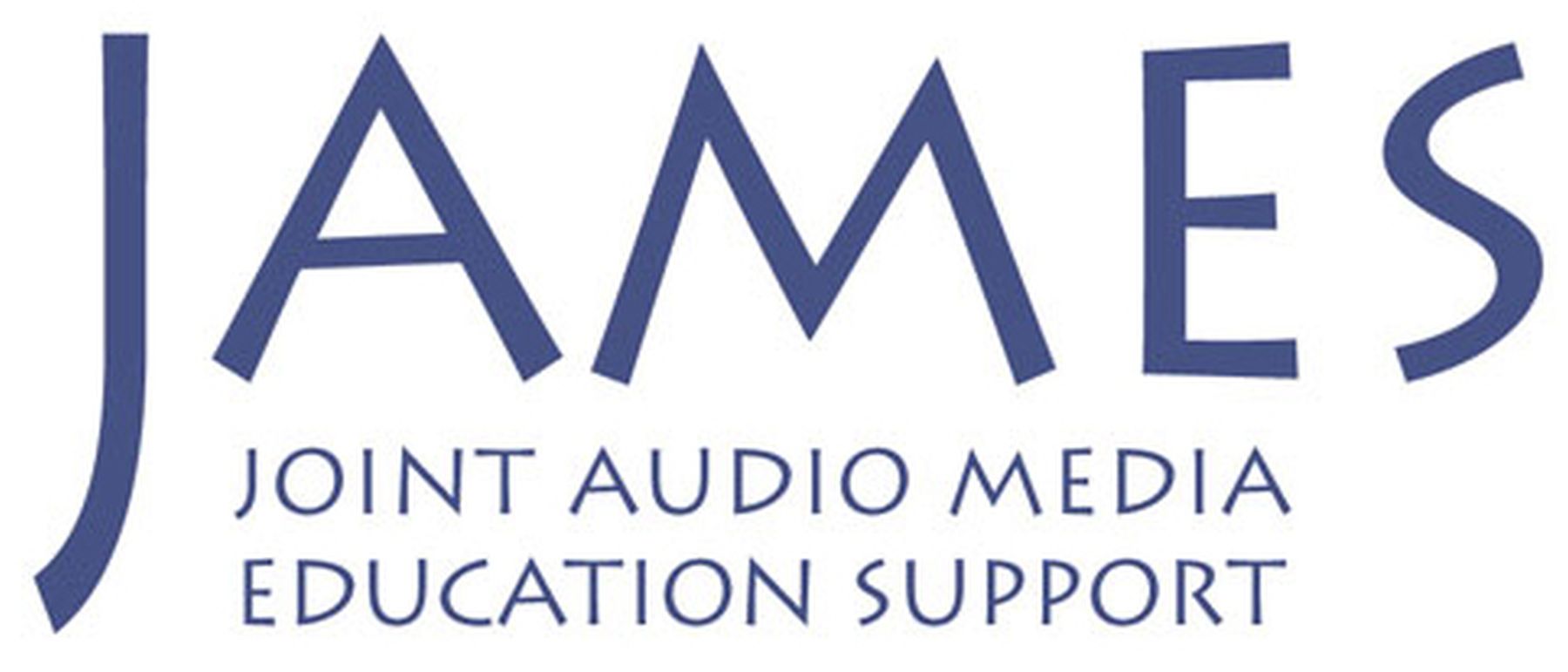
What You Will
Study
Technical Foundations - core (30 credits)
This module provides the theoretical underpinnings of many of the practical modules throughout the course, covering fundamental acoustics and the physics and electronics applicable to audio systems. Concepts are introduced and explained in lectures and followed by practical workshops and demonstrations in various forms. These can include using software to perform calculations and modelling, exploring acoustic theory in a studio environment, using test equipment to diagnose faults and building and testing audio cables.
Audio Practice - core (30 credits)
Based in a recording studio environment, this module acts as the ‘bedrock’ for your technical craft learning in the first year. You learn how to operate a modern studio recording environment, including signal flow, signal processing, microphone techniques, mixing and basic mastering. You also learn how to confidently use industry standard Digital Audio Workstations (DAWs) and effectively integrate their use in a studio environment. Although situated around music recording and mixing, many of the ideas, concepts and techniques are directly transferable to other areas of audio production that you encounter elsewhere in the course. Lectures discuss theoretical ideas and concepts, which are then applied practically in small workshops in both the recordings studios and audio labs.
Live Sound 1 - core (30 credits)
This module enables you to develop the core practical skills and theoretical knowledge for designing and deploying sound reinforcement equipment. Practical work focuses on applying small and medium scale portable systems to live music gigs. You learn how to select appropriate equipment and how to get the best out of it. Areas of focus include live mixing, monitoring, system design and tuning, working with artists and procedures for sound checks and changeovers.
Sound for Picture - core (15 credits)
In this module you are introduced to the basic skills and knowledge needed to capture, edit, create and mix audio in conjunction with moving image. You learn how to effectively capture sound on location and later synchronize this to picture using industry-standard Digital Audio Workstations (DAWS), how to build and use sound FX using both ‘found sound’ and library effects, and understand the function and use of the different sound elements employed in sound design.
Collaborative Technical Project - core (15 credits)
In this module you develop your collaborative, planning, time management and project specific technical skills by working on practical projects, productions or performances at LIPA. You work with students from other disciplines, as you apply your technical knowledge and skills to the needs of the production/project. You are guided by teaching staff who help you plan and manage your roles and provide technical instruction if required.
Advanced Technical Studies - core (30 credits)
This module bridges the gap between theoretical concepts and their application with a focus on current developments in digital audio systems. This includes digital signal processing, networking, data storage and transmission, and immersive audio. Ideas and concepts are introduced and discussed in lectures before workshops take place in the recording studios and audio labs where specific concepts can be applied in a practical setting.
Professional Preparation - core (15 credits)
In this module you prepare for employment. Key employment sectors in the audio industry are explored, including sessions with visiting industry practitioners. You develop the skills to identify opportunities and take advantage of them by developing an in-depth knowledge of the particular sector or sectors of the industry that you plan to work in. You begin to plan your third-year projects so you can acquire key skills, experience, and industry knowledge to enhance your prospects. As part of this module graduates return to share their experience of and advice for breaking into industry.
Live Sound 2 - option (30 credits)
As well as the core modules, in your second year you select 2 x 30 credits options and a 1 x 15 credits option as you start to specialise in line with your interests, strengths and ambitions. This module develops and advances the skills and techniques learned in Live Sound 1. Having previously focused on popular music, you are now introduced to sound reinforcement and sound design for theatrical and other non-musical performances. You work with more advanced technologies to deliver practical work combining both live elements and recorded cues, using distributed sound systems and matrixes. As part of the module, you also learn how to resolve faults in complex systems and are introduced to the set-up of complex multichannel RF systems for radio mics and monitoring.
Music Recording – option (30 credits)
As well as the core modules, in your second year you select 2 x 30 credits options and a 1 x 15 credits option as you start to specialise in line with your interests, strengths and ambitions. Building on the core studio skills developed in your first year, in this module you learn to use increasingly complex and sophisticated studios and tools. You learn how to mix and master multi-track recordings to meet specific briefs, using a variety of tools including automation, EQ, effects and dynamics processors. You work with a range of advanced analogue and digital production consoles and DAW control surface options, and learn how these integrate into recording studios. There’s also an emphasis on defining music genres and their sound qualities, and further developing specific recording and production techniques to work in these genres.
Audio Post Production - option (30 credits)
As well as the core modules, in your second year you select 2 x 30 credits options and a 1 x 15 credits option as you start to specialise in line with your interests, strengths and ambitions. This module teaches you the practical skills, knowledge and understanding needed to enable you to record, mix and create sound for moving image after the picture has been locked. You work with surround-capable desks and workstations to produce multi-channel mixes in a variety of formats including 5.1, 7.1 and Dolby Atmos. Professional workflows for track-lay, Foley recording and editing and dialogue re-recording are explored. The module also looks at the key technical principles surrounding audio for TV and film including video signals, formats, codecs and timecode.
Music Production – option (15 credits)
As well as the core modules, in your second year you select 2 x 30 credits options and a 1 x 15 credits option as you start to specialise in line with your interests, strengths and ambitions. This module helps you to develop your music production practice with a growing commercial awareness as you consider audience and industry expectations and how they can shape production values. You develop detailed knowledge of the stylistic conventions and qualities of a contemporary music genre and produce a recorded musical work that meets those conventions and qualities. This knowledge enables you to evaluate the work of existing songs and producers within social, cultural and theoretical contexts and critique your own work from a commercial angle.
Sound Design for Theatre – option (15 credits)
As well as the core modules, in your second year you select 2 x 30 credits options and a 1 x 15 credits option as you start to specialise in line with your interests, strengths and ambitions. In this module you develop your understanding of sound design along with the role of a theatrical sound designer and associate sound designer. Through lectures, workshops, practical exercises and project work you explore the key concepts of the role and how to create sound FX, moods and a sonic narrative in response to a brief. As part of your learning, you undertake the role of theatre sound designer and/or associate designer on a LIPA production or project.
Broadcast Audio – option (15 credits)
As well as the core modules, in your second year you select 2 x 30 credits options and a 1 x 15 credits option as you start to specialise in line with your interests, strengths and ambitions. This module develops your understanding of the technical requirements, systems and operational considerations for broadcast audio. Covering Radio and TV – both studio based and outside broadcasts – you learn to select the appropriate technical solutions for a broadcast and design, rig and operate a system for a live broadcast.
Final Portfolio - core (60 credits)
In this module, you bring together everything you have learned on the course to produce a portfolio of work, related to your ambitions, that matches professional standards and practice. It consists of a number of pre-agreed audio-related products which demonstrate your skills, knowledge and understanding. You analyse your work, comparing what you have produced to existing professional products. You also research a specific topic linked to an element of your practical work and present your findings in a practice-linked research paper.
Professional Preparation 2 – core (15 credits)
In this module you plan a pathway for the first steps of your career. You develop a personalised strategy for self-promotion, become increasingly confident in your communications with other professionals and gain a clear understanding of how to manage your personal and business finances. You take part in mock interviews/pitches and compile a portfolio which includes an overview of your intended role or business and a database of potential employers/clients.
Advanced Live Sound – option (30 credits)
In your final year as well as completing the core modules you choose a 1 x 30 credits module and a 1 x 15 credits module as you expand and deepen your knowledge, skills and experience.
To select this option you must have completed Live Sound 2 in your second year. In this module, you expand your understanding and knowledge gained over the previous two years. You develop advanced skills with live digital consoles, automation, speaker system design and control including line arrays, and digital audio distribution and networking. Taking on senior roles such as Sound Designer, Production Sound Engineer and Sound Number 1 and 2 on major LIPA public performances allows you to gain a broad range of practical experience. Although primarily a practical module, lectures, workshops and tutorials are used for the introduction of advanced theoretical concepts and their application.
Advanced Post Production – option (30 credits)
In your final year as well as completing the core modules you choose a 1 x 30 credits module and a 1 x 15 credits module as you expand and deepen your knowledge, skills and experience. To select this option you must have completed Audio Post Production in your second year. This module allows you to hone your post-production skills and techniques to an advanced level so you are working confidently at a professional standard. You build a sophisticated understanding of the use of track-lay and mixing techniques for film and video in surround, stereo and object-based formats. These include dialogue and Foley fitting and editing, multichannel effects applications and use, creating deliverables to a specified brief and conforming and re-conforming to picture changes.
Advanced Studio Production – option (30 credits)
In your final year as well as completing the core modules you choose a 1 x 30 credits module and a 1 x 15 credits module as you expand and deepen your knowledge, skills and experience. To select this option you must have completed Music Recording in your second year. This module helps you to extend and build on your music recording skills. You are introduced to new approaches to music sequencing, sound recording, layering and arrangement and advanced mixing techniques including Atmos Music. This enables you to achieve increasingly sophisticated and professional results in your music production work.
Game Audio – option (30 credits)
In your final year as well as completing the core modules you choose a 1 x 30 credits module and a 1 x 15 credits module as you expand and deepen your knowledge, skills and experience. To select this option you must have completed Audio Post Production in your second year. This module builds on the ideas and concepts you learned in Audio Post Production and applies them to game audio development and other adaptive media. You become familiar with workflows and tools as you devise, create and implement audio assets using existing established industry techniques. You work with game engines, learn the basic principles of coding and are introduced to audio piplelines. Lectures focus on theoretical aspects, which include analysis of existing games and their sound designs. Your workshops are ‘hands on’ practical sessions, which deal with operational skills and the application of these skills.
Lighting, Rigging and Power - option (15 credits)
In your final year as well as completing the core modules you choose a 1 x 30 credits module and a 1 x 15 credits module as you expand and deepen your knowledge, skills and experience. This practical module provides you with the fundamental concepts and practical skills required to safely and appropriately implement a temporary lighting system for a live production. It culminates in you working to a brief as you rig, fly, program and operate a lighting design for a live performance. Along the way you learn essential health and safety, rigging conventions and power distribution and safety.
Location Recording – option (15 credits)
In your final year as well as completing the core modules you choose a 1 x 30 credits module and a 1 x 15 credits module as you expand and deepen your knowledge, skills and experience. This highly practical module equips you with a range of skills and approaches to the capture and post production of a variety of different location recordings. It includes applying stereophonic, ambisonic and multi-channel techniques to a range of sources on location, evaluating different approaches and selecting the most appropriate for differing locations and editing and mixing location recordings using a range of post-production tools.
Video Production – option (15 credits)
In your final year as well as completing the core modules you choose a 1 x 30 credits module and a 1 x 15 credits module as you expand and deepen your knowledge, skills and experience. In this module, you are introduced to the basic techniques, skills and ideas needed to produce short videos, including music videos. You learn about camera techniques, basic lighting and editing. You gain experience of the production process including how to script and develop a storyboard, before shooting and editing a finished video.
How You Will
Study
-
Workshops
-
Practical Production Work
-
Lectures
-
Tutorials
-
Seminars
-
Independent study
-
Group Work
-
Masterclass
How You Will Be
Assessed
You will be assessed through exams, written papers or presentations, practical production work and continuous assessment. In your third year, you complete a research project in an area which is of interest to you and relevant to your intended career path. Practical work forms the largest percentage of your assessed work.
Practical/written work ratio
65% practical work / 35% written assignments/exams
Validation
LIPA aims to have probationary degree awarding powers from September 2025 (subject to Office for Students approval). This is an exciting step, allowing us to take full control of our curriculum and course portfolio. In the unlikely event LIPA does not achieve probationary degree awarding powers, our degrees will be validated by Liverpool John Moores University.
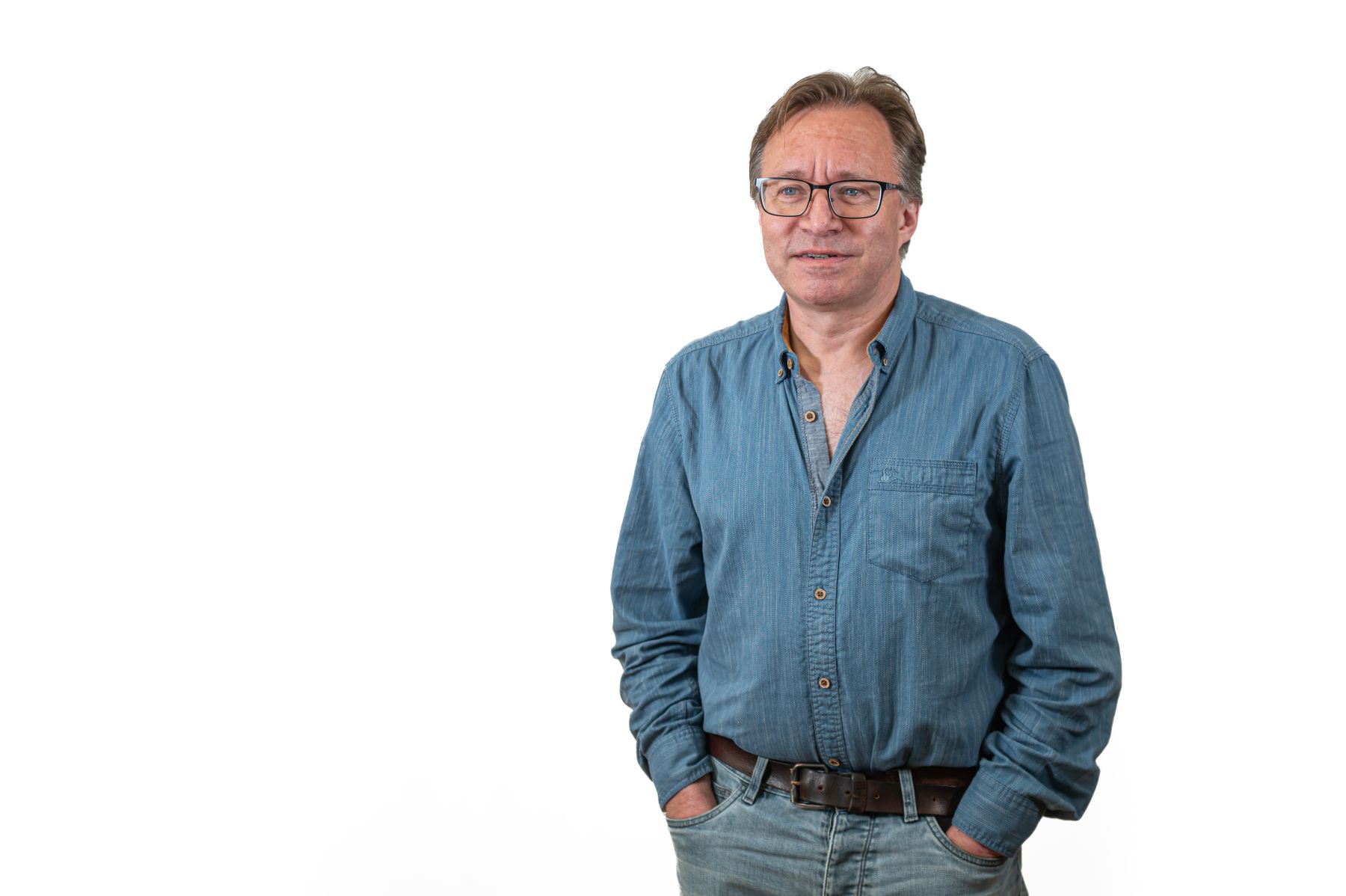
Jon Thornton
Director of School of Creative Technologies, Design and Enterprise
Jon started by helping out in studios, and studied the UK’s first BTec in Music Technology. While studying, he gained experience in TV audio before moving on to a post-production facility (sound to picture). Jon continued working there until he began lecturing. He regularly writes for Resolution, a leading audio magazine, which keeps him up to date with the latest equipment and thinking. Having worked in different areas of the audio industry, he is able to spot where skills and knowledge crossover, which informs his teaching. Jon believes that students need to learn by doing things, but also by understanding why they are doing them.
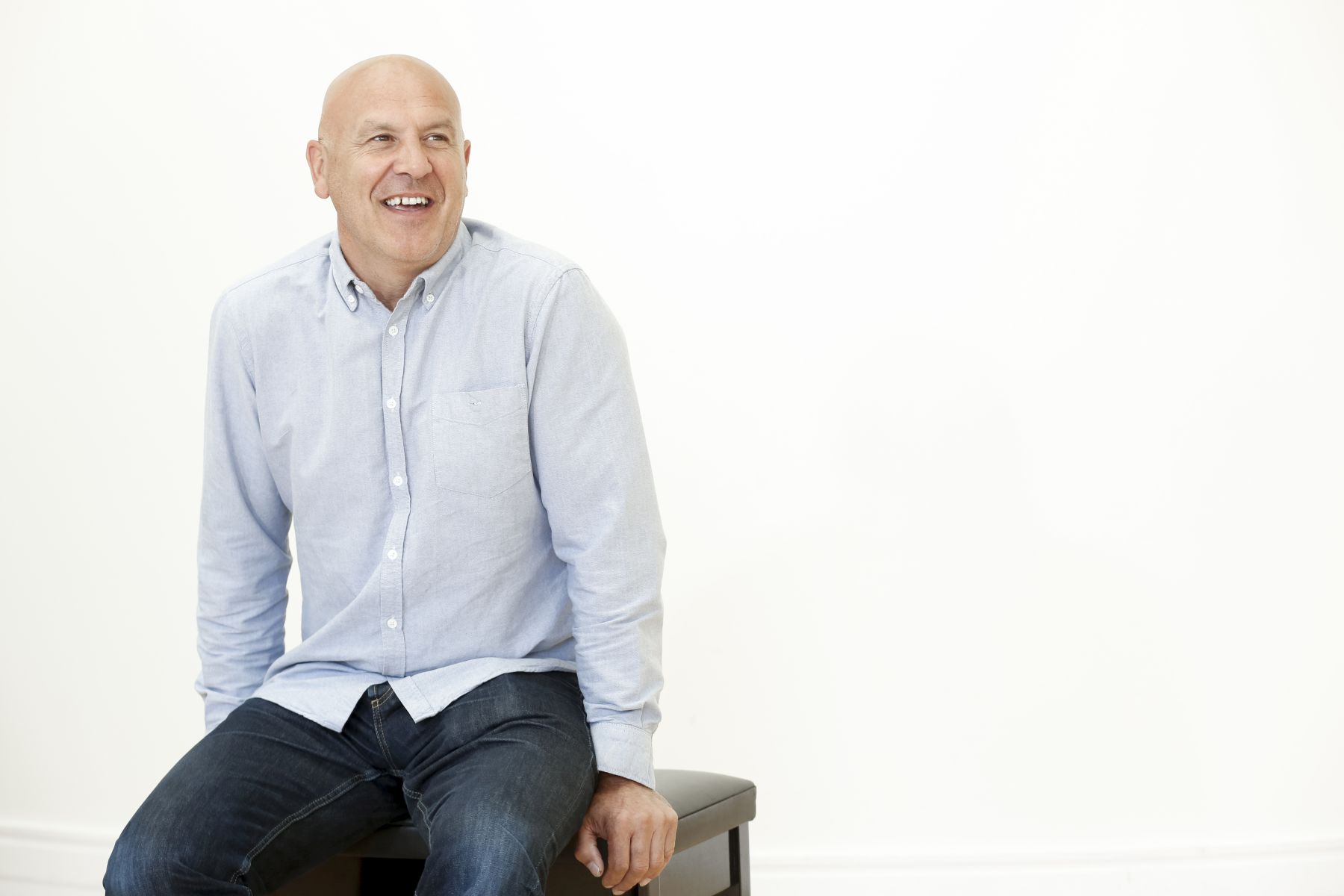
Mark Atherton
Lecturer
Mark works as an engineer and producer for artists requiring further production work on their material. Mainly focused on electronic music, the majority of his work is in desktop audio. Mark has worked with labels including Soulfuric Recordings, Defected and Ministry of Sound and artists such as Joe Roberts and Melanie Williams. He feels that understanding how to get the most from today’s multi-functional music production programmes are key to helping artists realise their creative aspirations. Having spent 15 years in music production, Mark believes in showing students the possibilities first, then allowing them to shape these possibilities around their own projects.
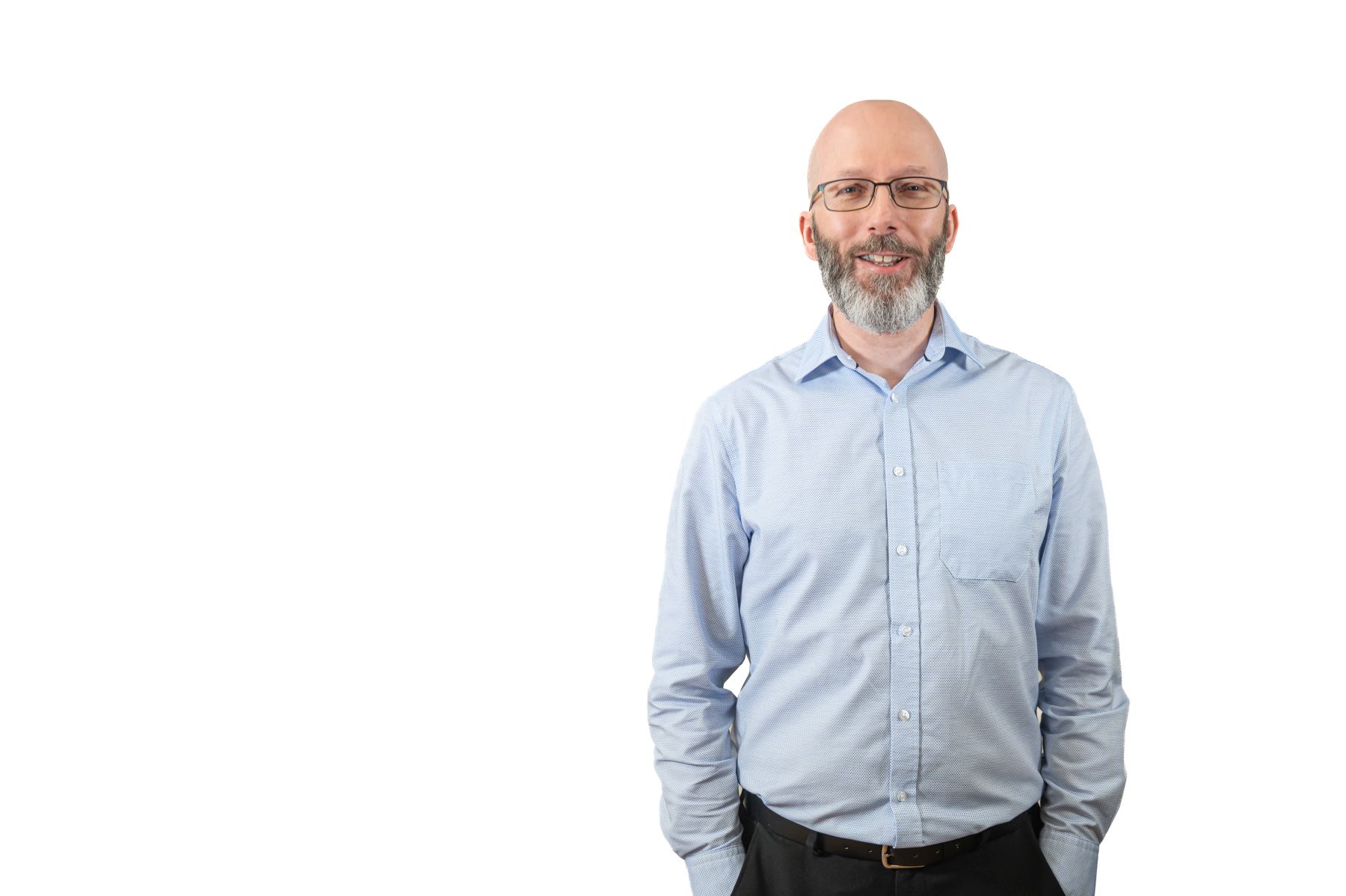
Chris Layton
Senior Lecturer
Chris has over 20 years of experience as a live sound engineer and specialises in providing practical solutions for complex and challenging acts. He has toured extensively with artists including Prodigy, The Pogues and Chumbawamba. Chris’ experience means he understands both the technical and the equally important non-technical skills needed to work and succeed in the industry. Chris feels that it’s vital to develop a solid understanding of underlying principles before learning to apply these to a range of situations. He relates theoretical concepts to actual projects, allowing students to collaborate, problem solve and gain hands-on experience which reflects real-world production environments. In 2013, Chris won the PRG award for outstanding achievement in education at the inaugural Technical Theatre Awards (TTA), which celebrate the UK live entertainment industry’s backstage professionals.
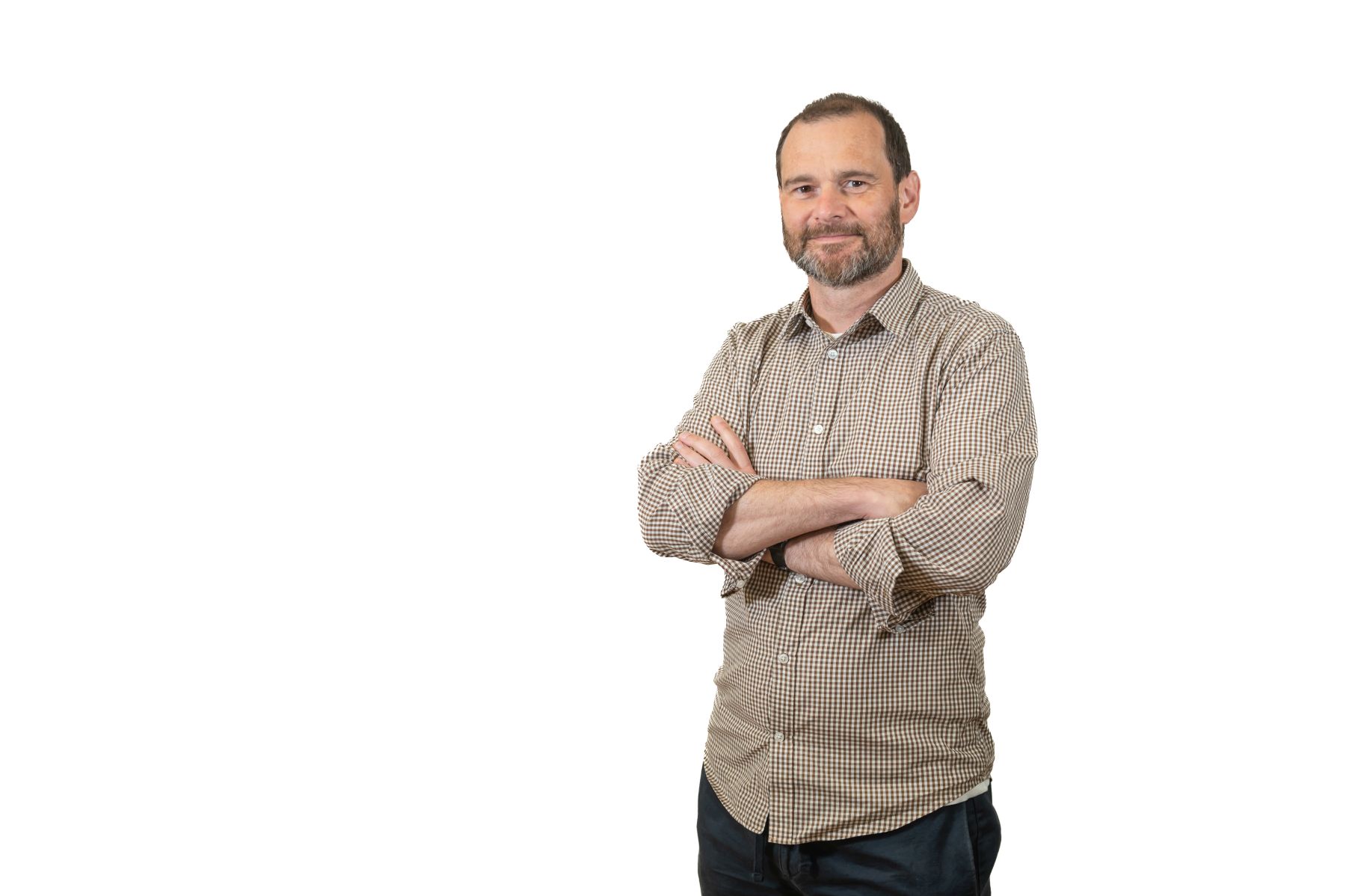
Pete Philipson
Lecturer
Pete has been involved in the audio and music industry for around 30 years. His activities involve recording, mixing and performing music, where he both collaborates with other artists and works on his own productions. His recordings have been released on established independent labels including Fire, Leaf and Static Caravan, and they have been played on BBC 6 Music, Radio 2 and Radio 3. Musicians he has worked with recently include Jane Weaver, Nancy Elizabeth and Jon Thorne. As a guitarist he has played many notable venues and festivals including Glastonbury, Green Man and SXSW.
His qualifications include a BEng in Electroacoustics and a Masters in Music Technology. Before joining LIPA as a lecturer in 2003, he worked as a sound technology lecturer at Salford University, and before that as an audio research assistant and test engineer. He is a member of the Audio Engineering Society.
Pete mostly teaches course content associated with recording studio operations and the audio theory behind this technology. The modules that he leads are Sound Technology Theory, Studio Design, Creative Signal Processing, Immersive Audio and Research Project. He also contributes to Digital Audio and Advanced Studio Techniques modules.
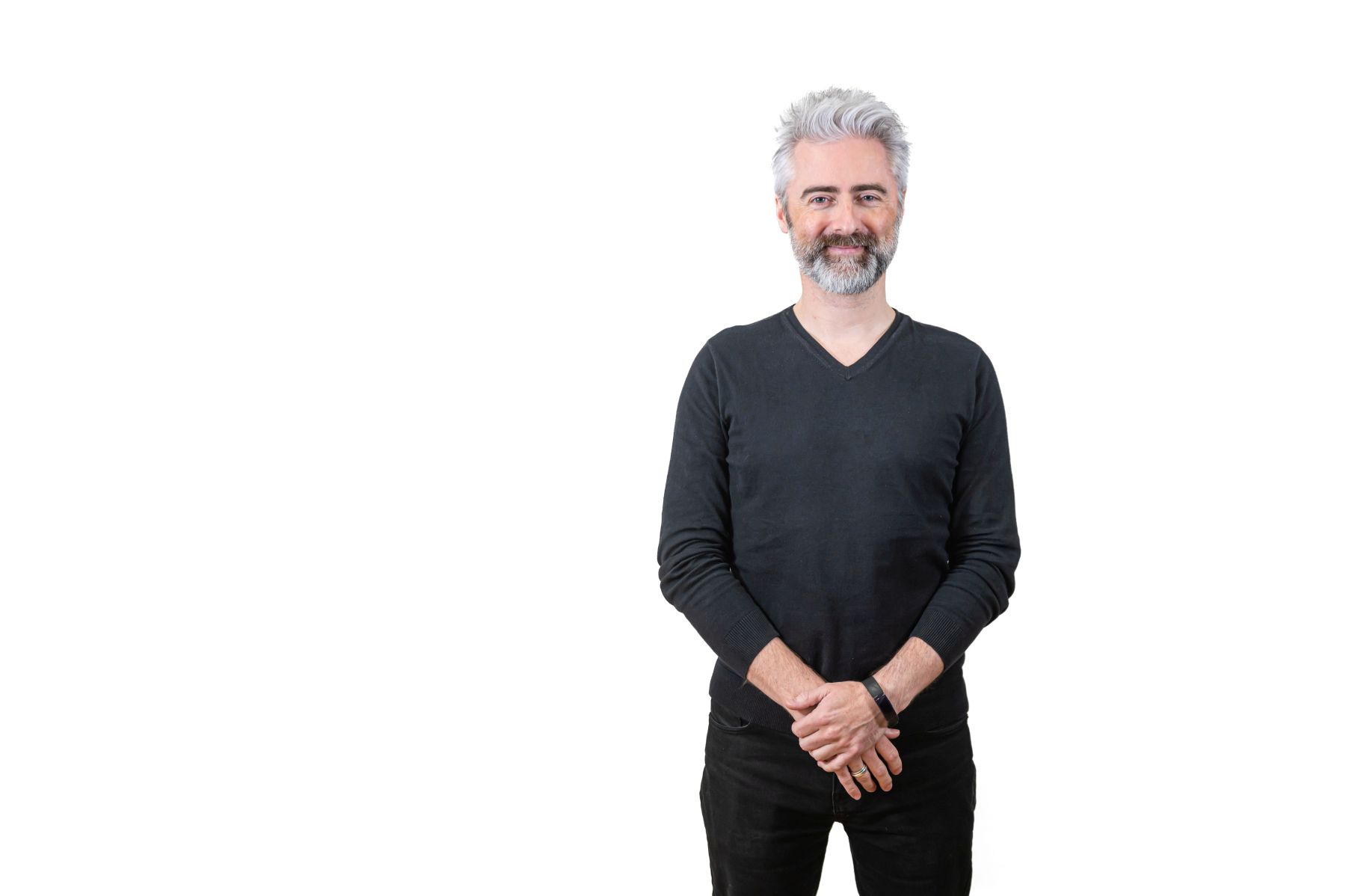
Paul Stakounis
Lecturer
Paul graduated with LIPA’s very first intake of students in 1998 and worked as a gigging engineer, producer and studio consultant for a number of years before joining the Sound Technology teaching team. He is a multi-instrumentalist and composer, currently composing for his own untitled music project. Paul helps students deconstruct the technical and creative processes of professional studio engineers and encourages them to apply these processes in their own work. He also supports students to embed professional practises in their work, preparing them for entry level jobs, and allowing them to convert these early opportunities into long-term technical and creative careers.
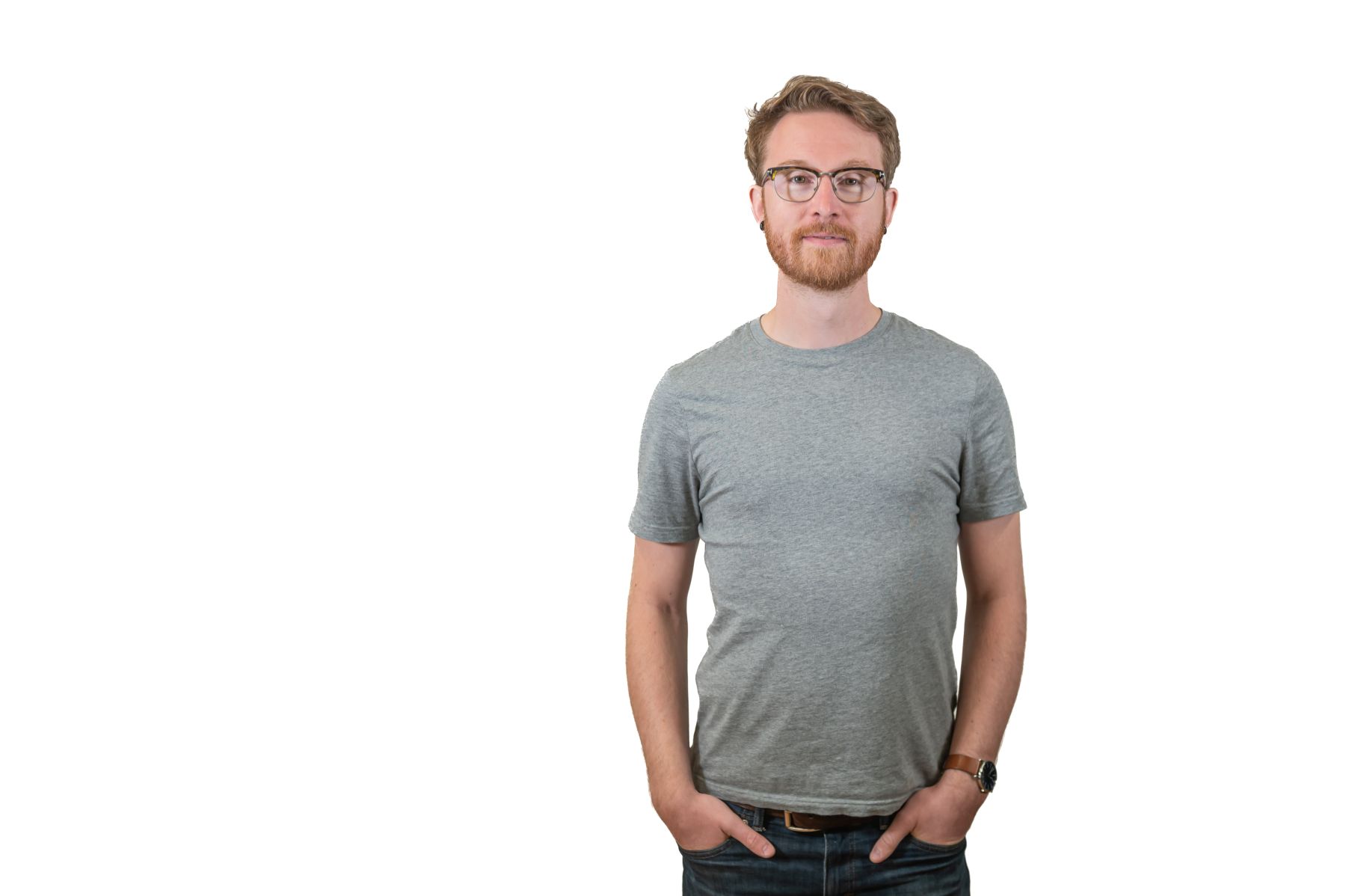
Tony Draper
Visiting Lecturer
Tony is a freelance recording engineer, mixer and producer, who mainly works out of Parr Street Studios and Real World Studios. Tony was one of the engineers on the Justice Collective 2012 Christmas number one single He Ain’t Heavy, He’s My Brother. His work on albums for recent clients from China, Canada, Egypt, Lebanon, Israel and Switzerland has taken him to New York, South Africa, Norway, Paris. Tony’s day to day professional practice in software and production technique means he’s able to pass on his skills and expertise in the most current production trends and technology.
What Our
Graduates Do
LIPA graduates work across the entire audio industry, including live sound, recorded sound, film and TV, gaming and emergent technology. Their career achievements have included:
Abbie Shaw (2021)
Junior Sound Editor, Boom Post
Joe O'Halloran (2020)
Sound assistant, Phaze UK
Ben Harper (2019)
Studio engineer, Motor Museum Recording Studio
Xena Kirby (2019)
Assistant sound effects editor, Soundbyte Studios
Matt Taylor (2019)
Sound Engineer. Winner of MPG Awards Rising Star 2022
Rob Davidson (2018)
Foley editor & recordist, Twickenham Film Studios
Will Stanton (2018)
Assistant re-recording mixer, Formosa Group
Joe Wyatt (2018)
Assistant engineer, Abbey Road Studios
Henry Bentham (2017)
Broadcast engineer, Gravity Media
Jake Boulter (2017)
Team manager, Formula One for RIEDEL Communications
Calum Gilmore (2016)
Sound guarantee, NEP
Django Holder (2016)
Lead audio production coordinator, ARK360
Jake Smith (2016)
Sound engineer, RSC
Andrew Watts (2016)
Head of Technical, AdLib
Joss Walker (2015)
System technician (Pharrell Williams, Liam Gallagher, Take That)
Dan Wishman (2015)
Game sound designer, Game sound designer, Rock Steady
Jamie McIntyre (2014)
Consultant (Theatre Design), Charcoal Blue
Alex Baranowski (2005)
Sound designer, composer, arranger (True Things, Staged for BBC, The Windermere Children for Warner Brothers)
Robin Schmidt (2002)
Mastering engineer
Mike Crossey (2001)
Producer (Arctic Monkeys, The 1975, Jake Bugg, Ben Howard)
Educational qualifications are important but limited in what they can tell us about you.
Your natural ability, your fit with what and how we teach, your growth and your potential are also key factors in our admission process. We can’t evaluate these solely on your educational achievements, so no matter which course you are applying for, we look for the following attributes on your application and at the interview stage.
Additional Costs
As part of this course, there are likely to be some additional costs that are not included within your tuition fees. Many of these are optional. We’ve also included information about cost of living expenses in Liverpool in this section.
Books and equipment
All of the key texts for the course can be found in our Learning Resources Centre (LRC). A couple of books are so good as working references for the entire three years that it can be worth buying your own copies. We’ll send you recommendations for these before you enrol.
As we work almost entirely in the digital domain, backing up and restoring your work to a variety of media will become a key part of your life. Although we will supply you with some re-writable media (USB pen drives etc.), many students find an external USBC / Thunderbolt hard-drive to be a quicker and more useful solution, especially if you have your own computer.
You also need your own set of headphones to use while working in the Digital Audio Lab environments. While any set of cans or earbuds that you might already have to use with your phone etc. will do for this, many students like to have something a little more accurate that they can use in other environments too. We’ll give you more advice on selecting headphones in your enrolment pack.
Finally, you need a decent scientific calculator with a log and inverse log function, you can usually pick one of these up quite cheaply. Although many smartphones have a calculator that work perfectly well for this, you won’t be able to use your smartphone in exams here.
Cost of living
Wherever you choose to study, you'll have to budget for accommodation and other everyday living expenses, such as food and bills.
Liverpool is one the UK's cheapest student cities. Accommodation costs are relatively low, particularly compared to the south east of England, and the city's shops and entertainment venues also have lots of student discounts.
We’d recommend completing a simple budget plan to predict your income and outgoings. This should include accommodation, bills, insurance, TV licence, food, laundry, clothes, books, travel and socialising. How much you'll want to spend on a lot of these is completely personal.
There is lots of advice available online about budgeting:
- UCAS budget calculator is a great tool to help you balance your in-comings and out-goings.
- SaveTheStudent provides useful information on student money resources, including loans, budgeting, and scholarship sources.
Most UK students will be able to take out a maintenance loan to assist with living costs and there are some grants available. We also offer some bursaries. To find out more, please see Student Finance and bursaries.
Because our courses are intensive and we have a busy season of student performances, options for part-time work during our teaching periods can be limited. However, many of our students gain flexible part-time work, in performance venues, shops, restaurants and bars. We also provide casual work opportunities for our students ranging from stewarding work on our productions to working with young people to help us widen access to our courses. The long summer break is when many of our students choose to work.
Additional Costs
As part of this course, there are likely to be some additional costs that are not included within your tuition fees. Many of these are optional. We’ve also included information about cost of living expenses in Liverpool in this section.
Books and equipment
All of the key texts for the course can be found in our Learning Resources Centre (LRC). A couple of books are so good as working references for the entire three years that it can be worth buying your own copies. We’ll send you recommendations for these before you enrol.
As we work almost entirely in the digital domain, backing up and restoring your work to a variety of media will become a key part of your life. Although we will supply you with some re-writable media (USB pen drives etc.), many students find an external USBC / Thunderbolt hard-drive to be a quicker and more useful solution, especially if you have your own computer.
You also need your own set of headphones to use while working in the Digital Audio Lab environments. While any set of cans or earbuds that you might already have to use with your phone etc. will do for this, many students like to have something a little more accurate that they can use in other environments too. We’ll give you more advice on selecting headphones in your enrolment pack.
Finally, you need a decent scientific calculator with a log and inverse log function, you can usually pick one of these up quite cheaply. Although many smartphones have a calculator that work perfectly well for this, you won’t be able to use your smartphone in exams here.
Cost of living
Wherever you choose to study, you'll have to budget for accommodation and other everyday living expenses, such as food and bills.
Liverpool is one the UK's cheapest student cities. Accommodation costs are relatively low, particularly compared to the south east of England, and the city's shops and entertainment venues also have lots of student discounts.
We’d recommend completing a simple budget plan to predict your income and outgoings. This should include accommodation, bills, insurance, TV licence, food, laundry, clothes, books, travel and socialising. How much you'll want to spend on a lot of these is completely personal.
There is lots of advice available online about budgeting:
- UCAS budget calculator is a great tool to help you balance your in-comings and out-goings.
- SaveTheStudent provides useful information on student money resources, including loans, budgeting, and scholarship sources.
Most UK students will be able to take out a maintenance loan to assist with living costs and there are some grants available. We also offer some bursaries. To find out more, please see Student Finance and bursaries.
Because our courses are intensive and we have a busy season of student performances, options for part-time work during our teaching periods can be limited. However, many of our students gain flexible part-time work, in performance venues, shops, restaurants and bars. We also provide casual work opportunities for our students ranging from stewarding work on our productions to working with young people to help us widen access to our courses. The long summer break is when many of our students choose to work.
View the programme specification on the LJMU course catalogue here






